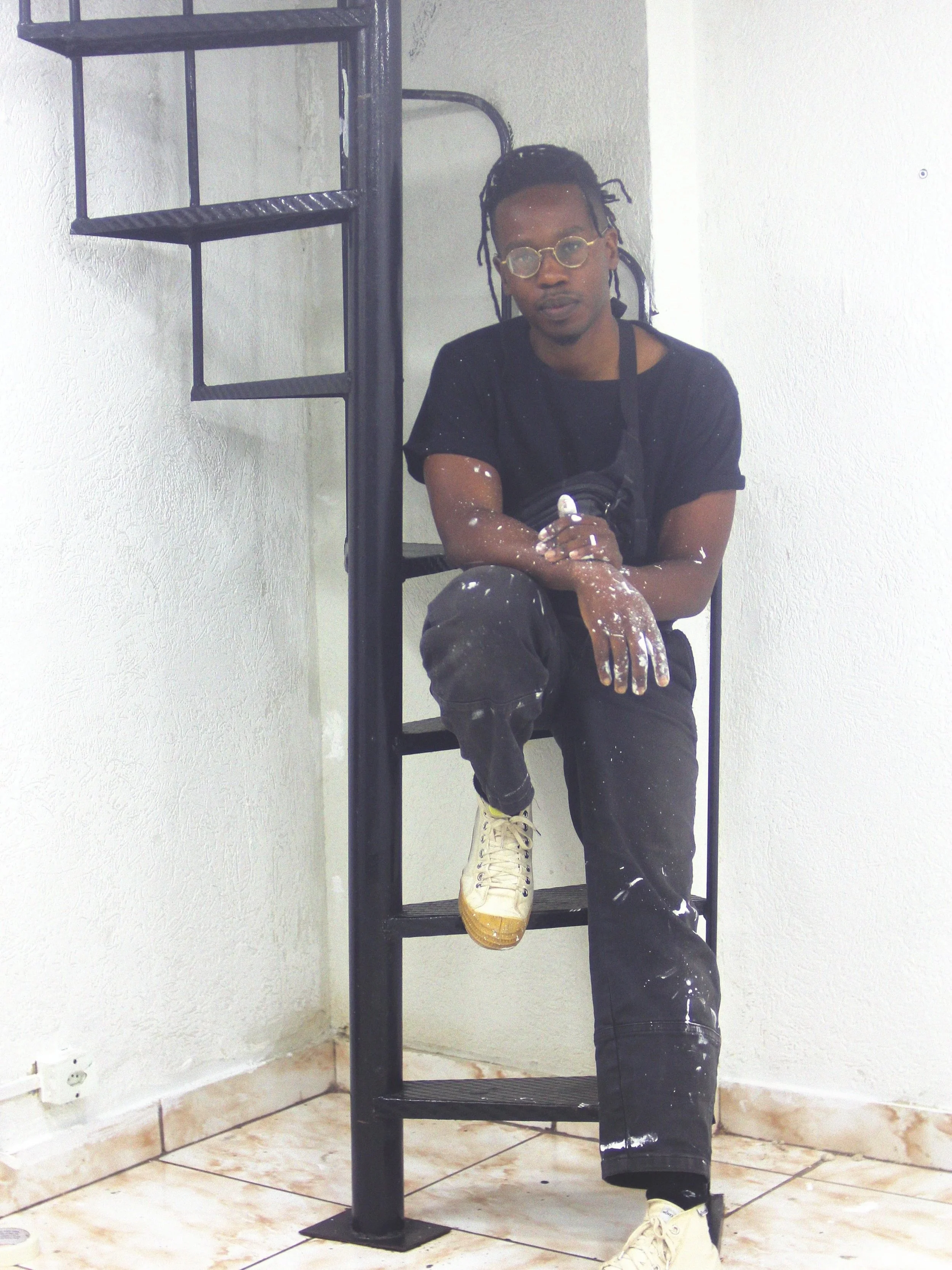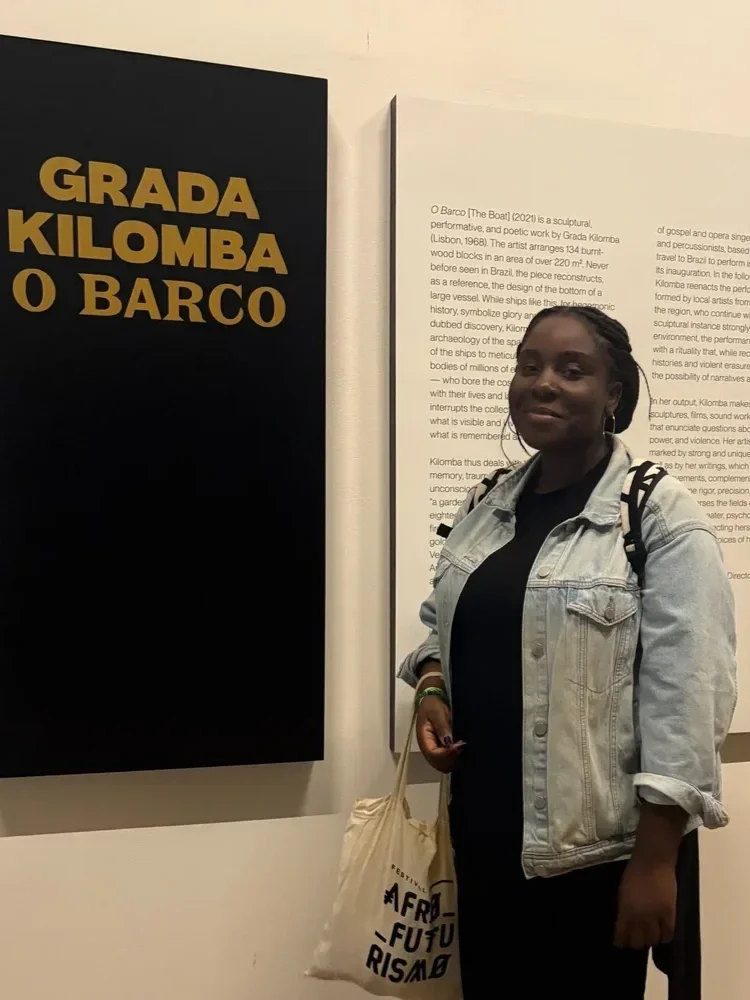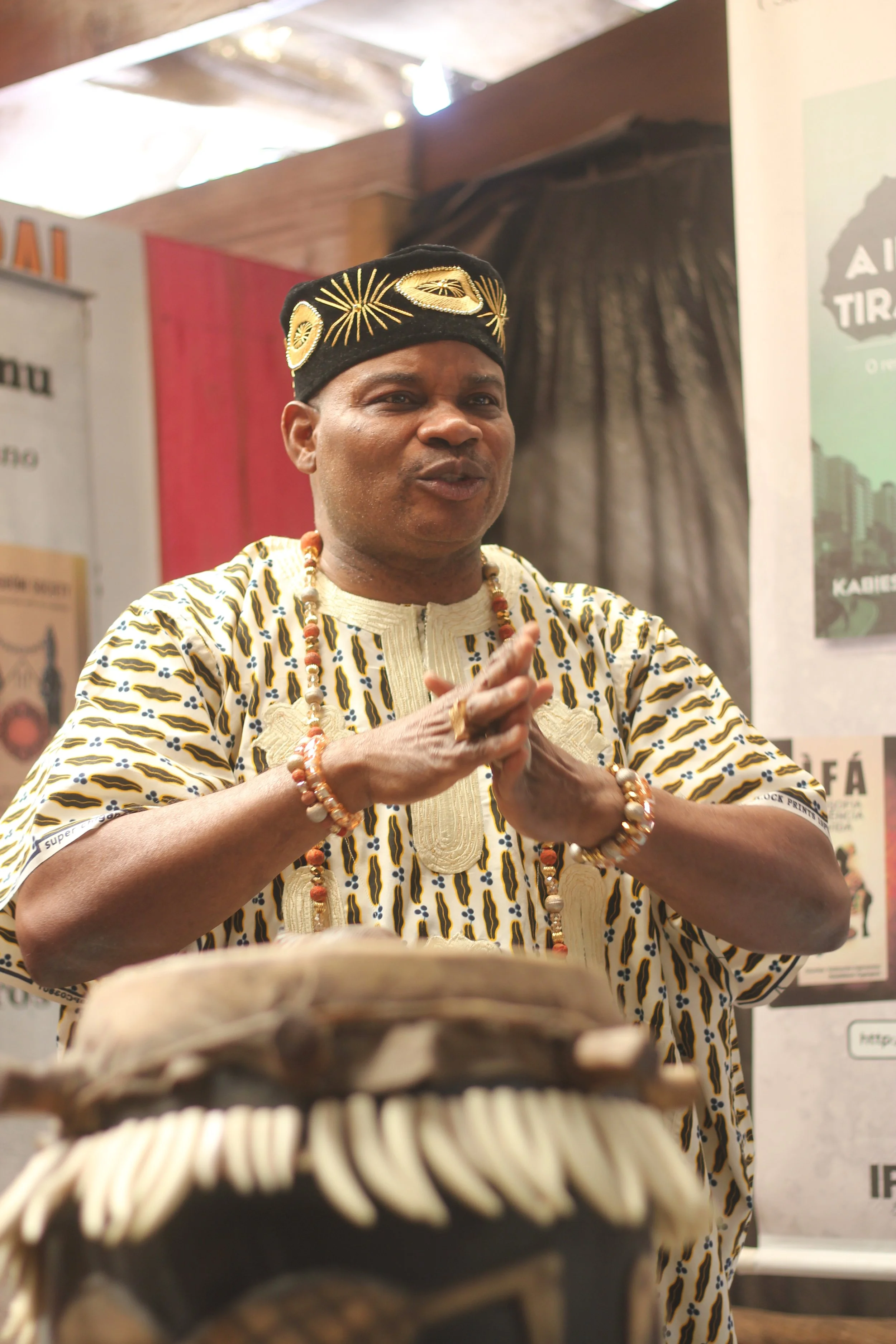
BADS_lab 2025
September 1 – September 9, 2025
Galeria Presidente (Galeria do Reggae)
São Paulo





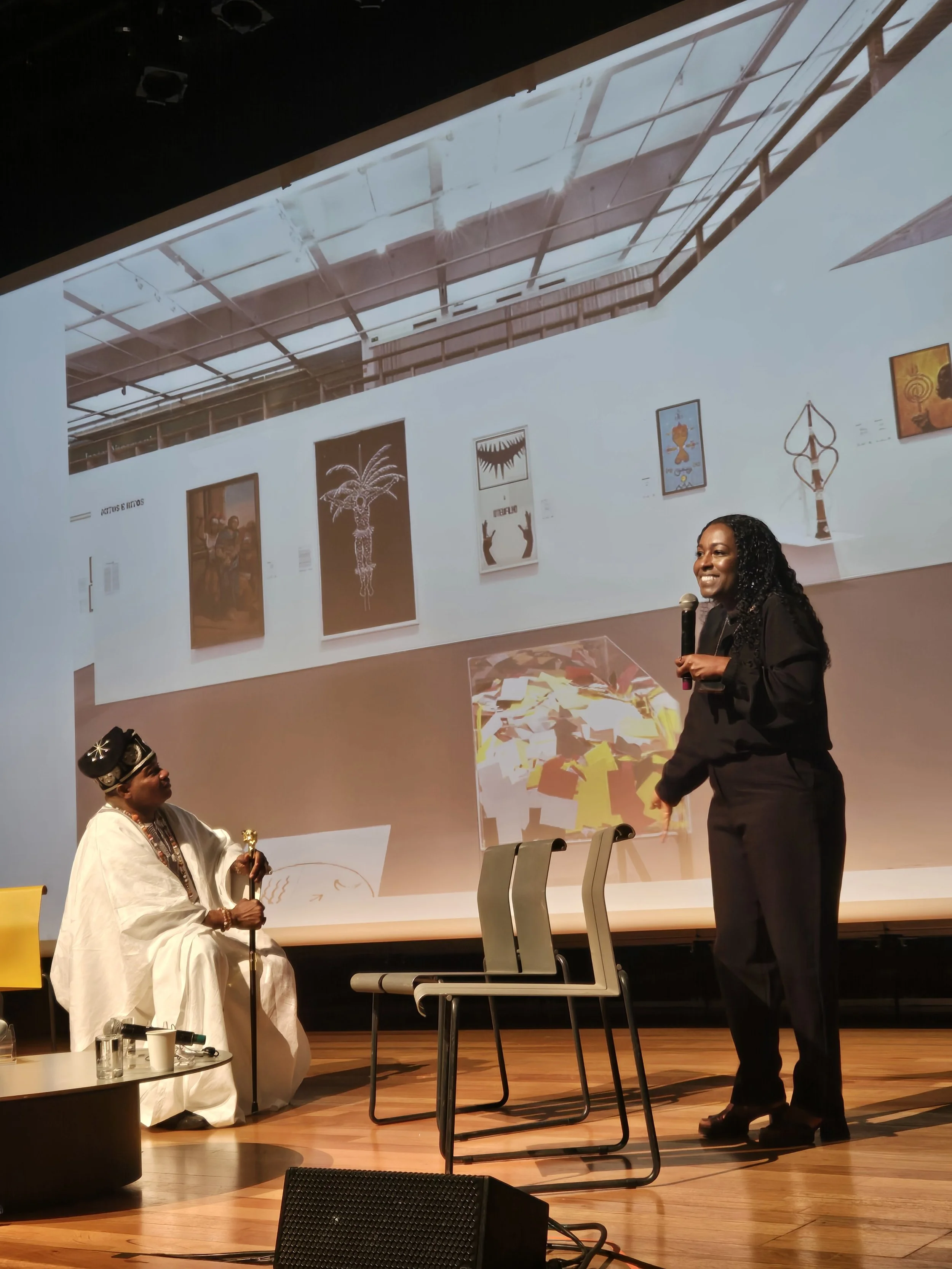

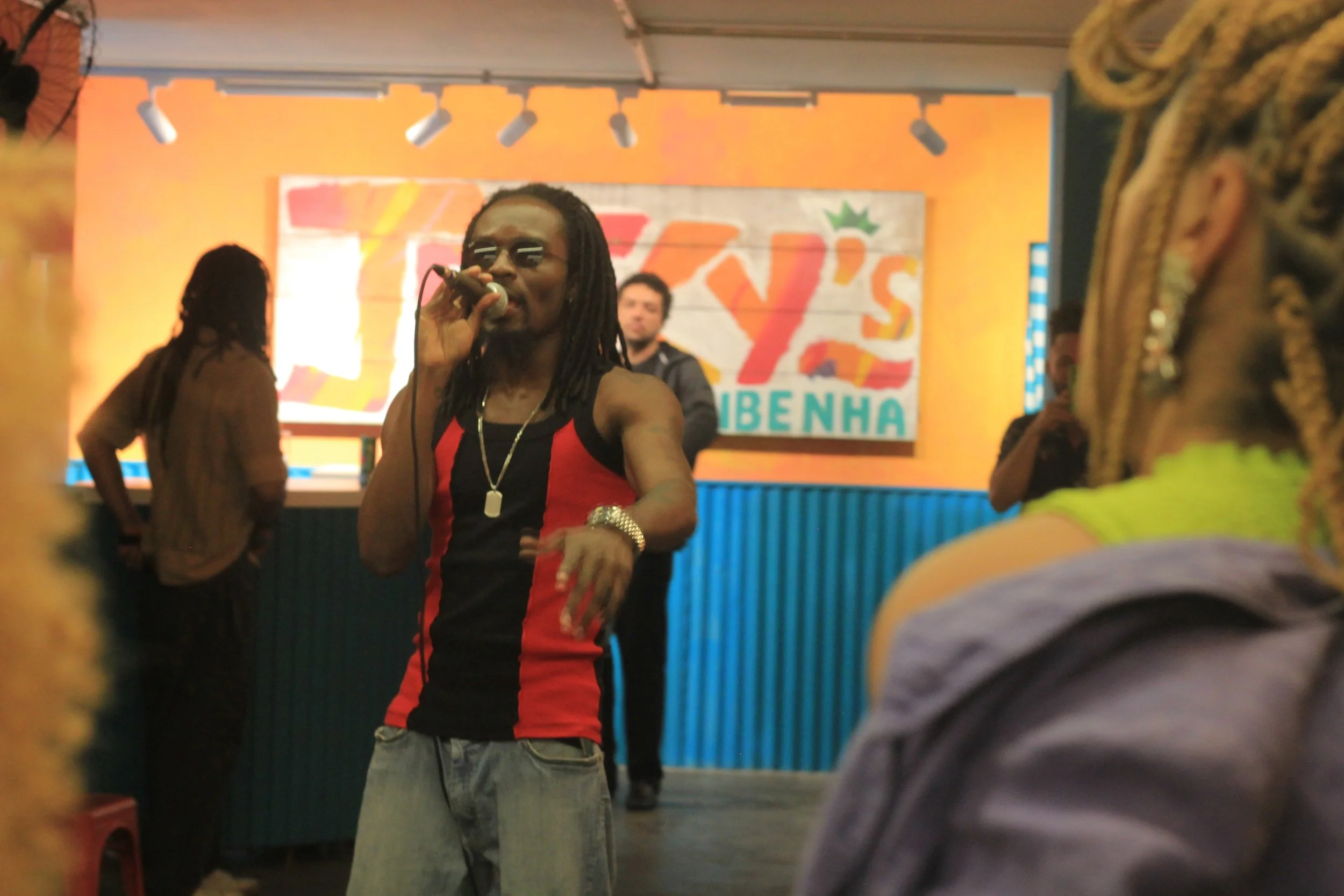
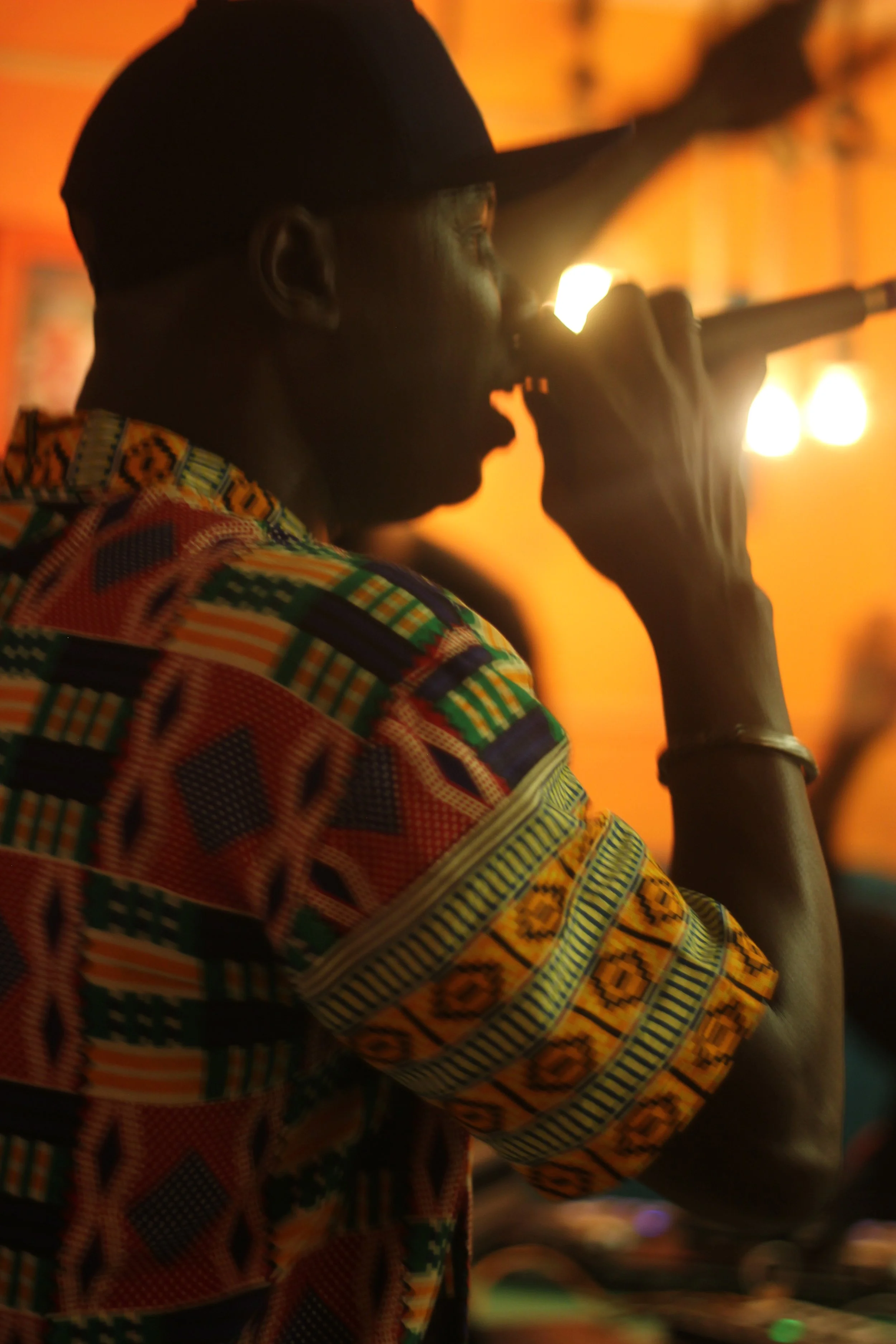
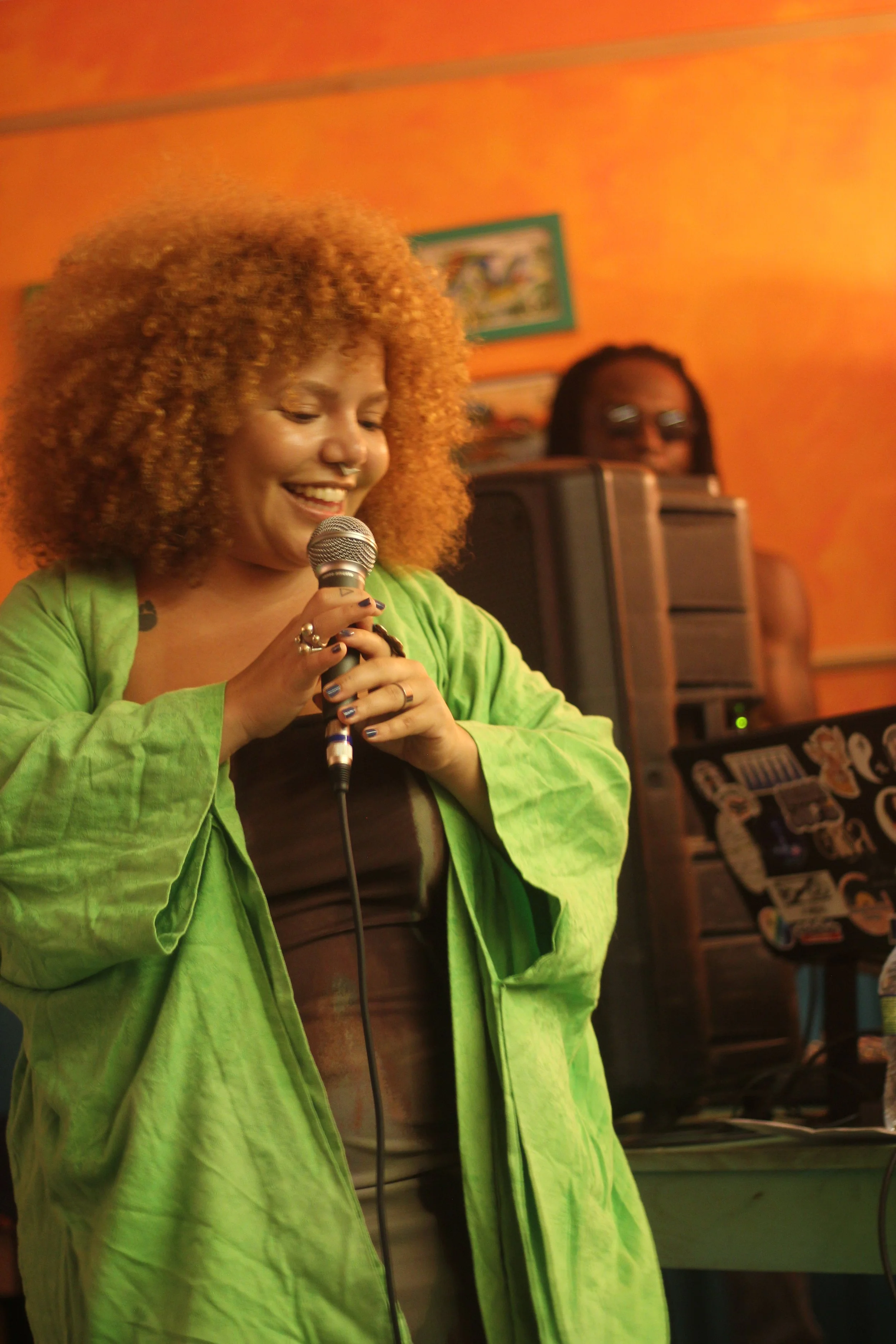
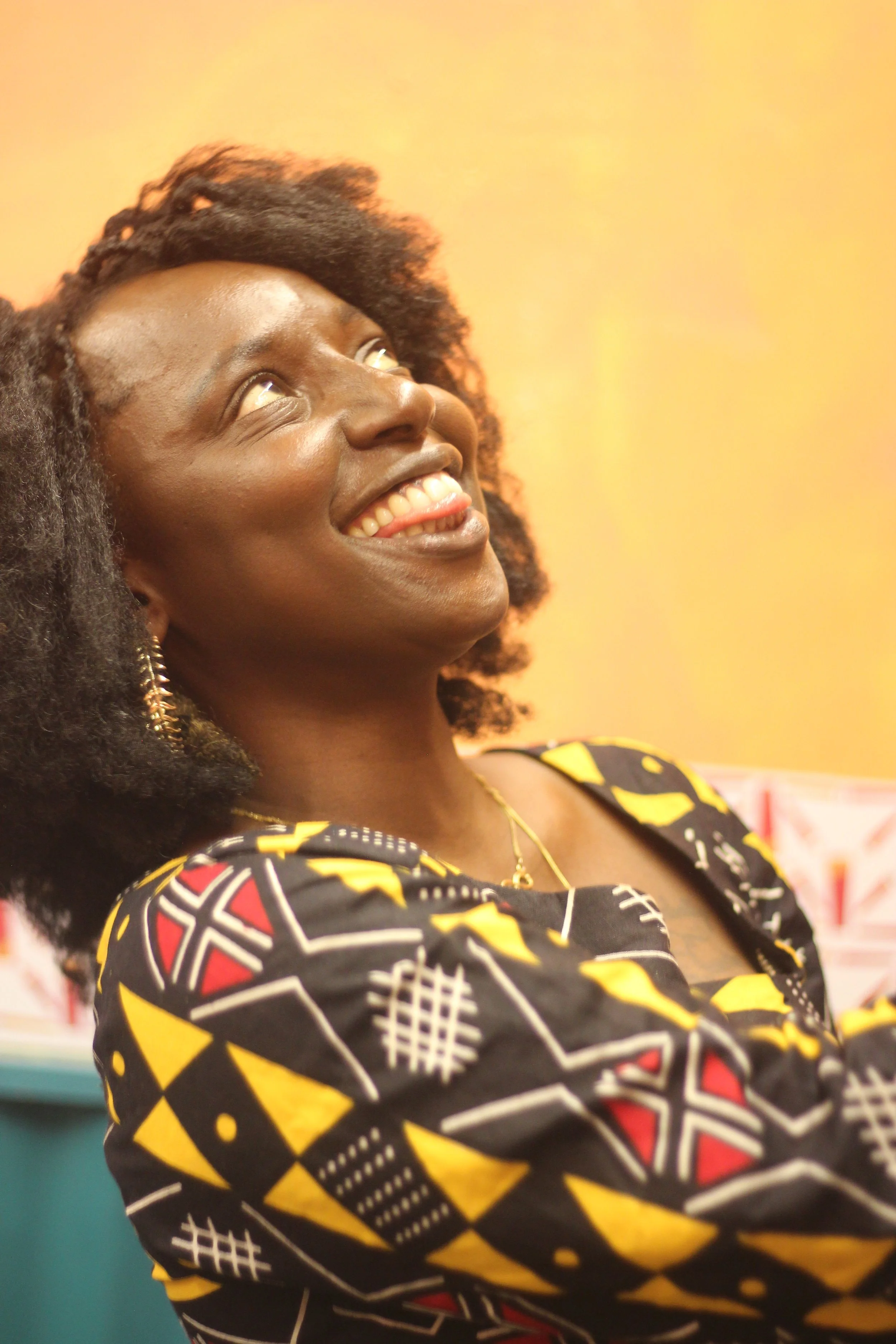
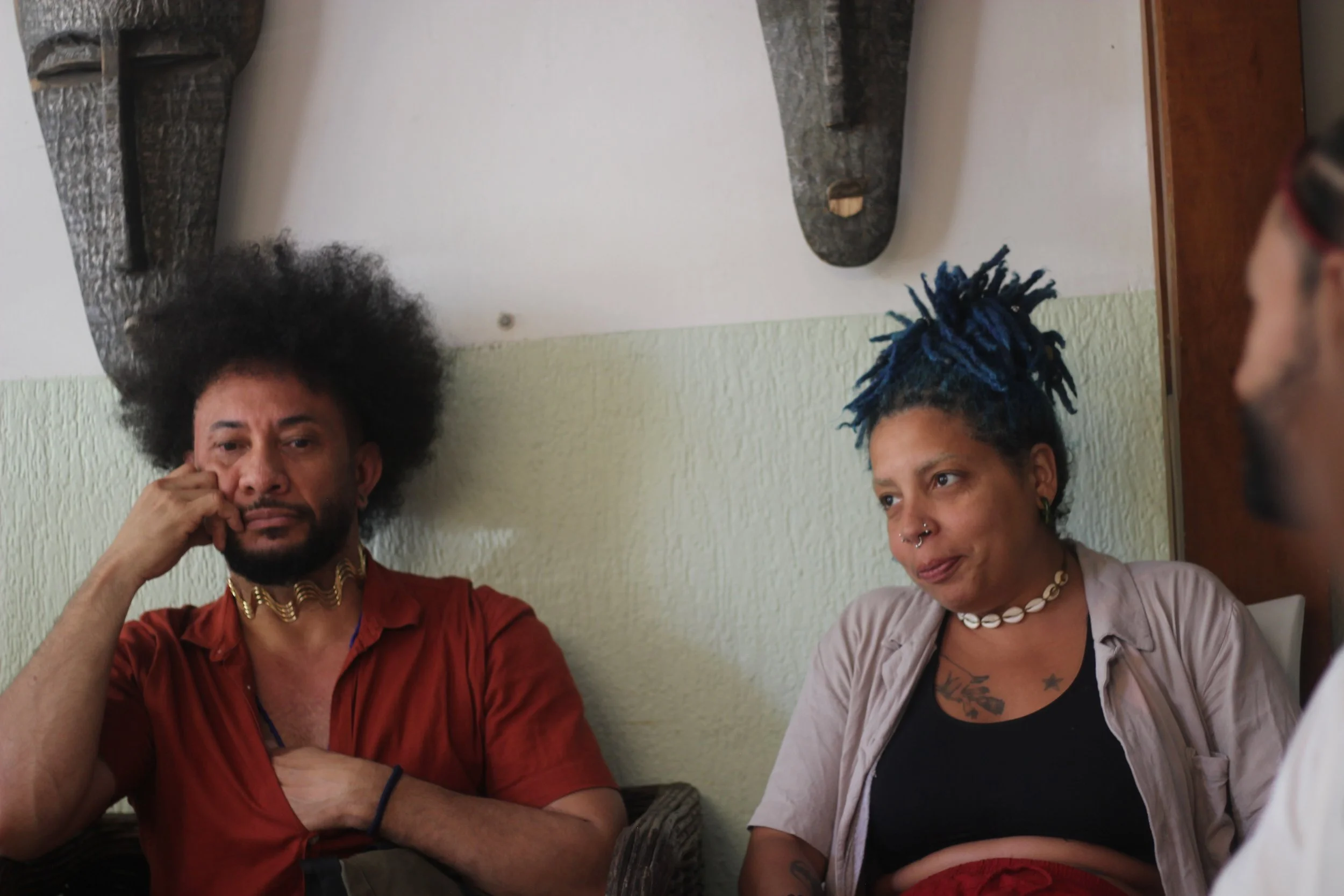
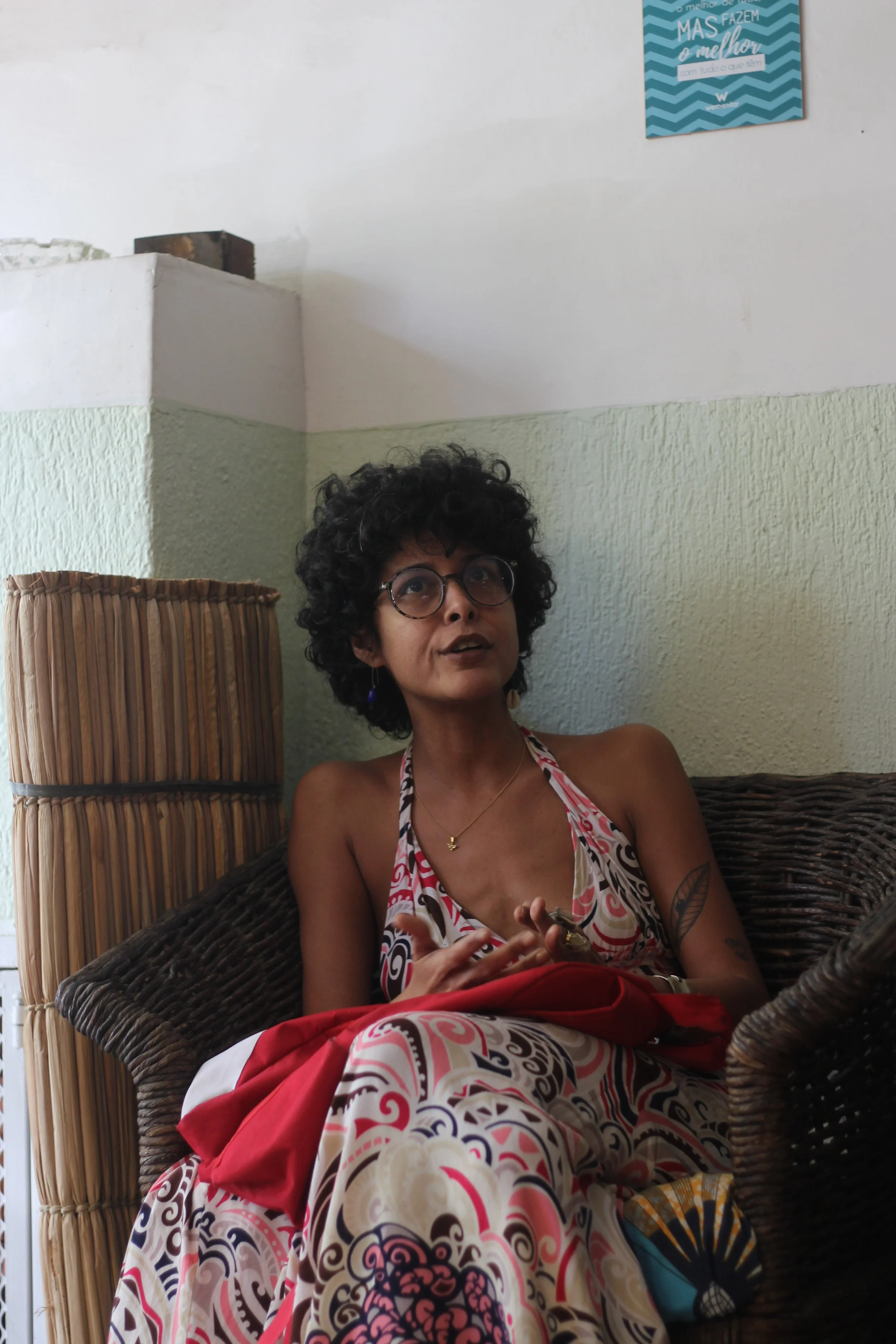
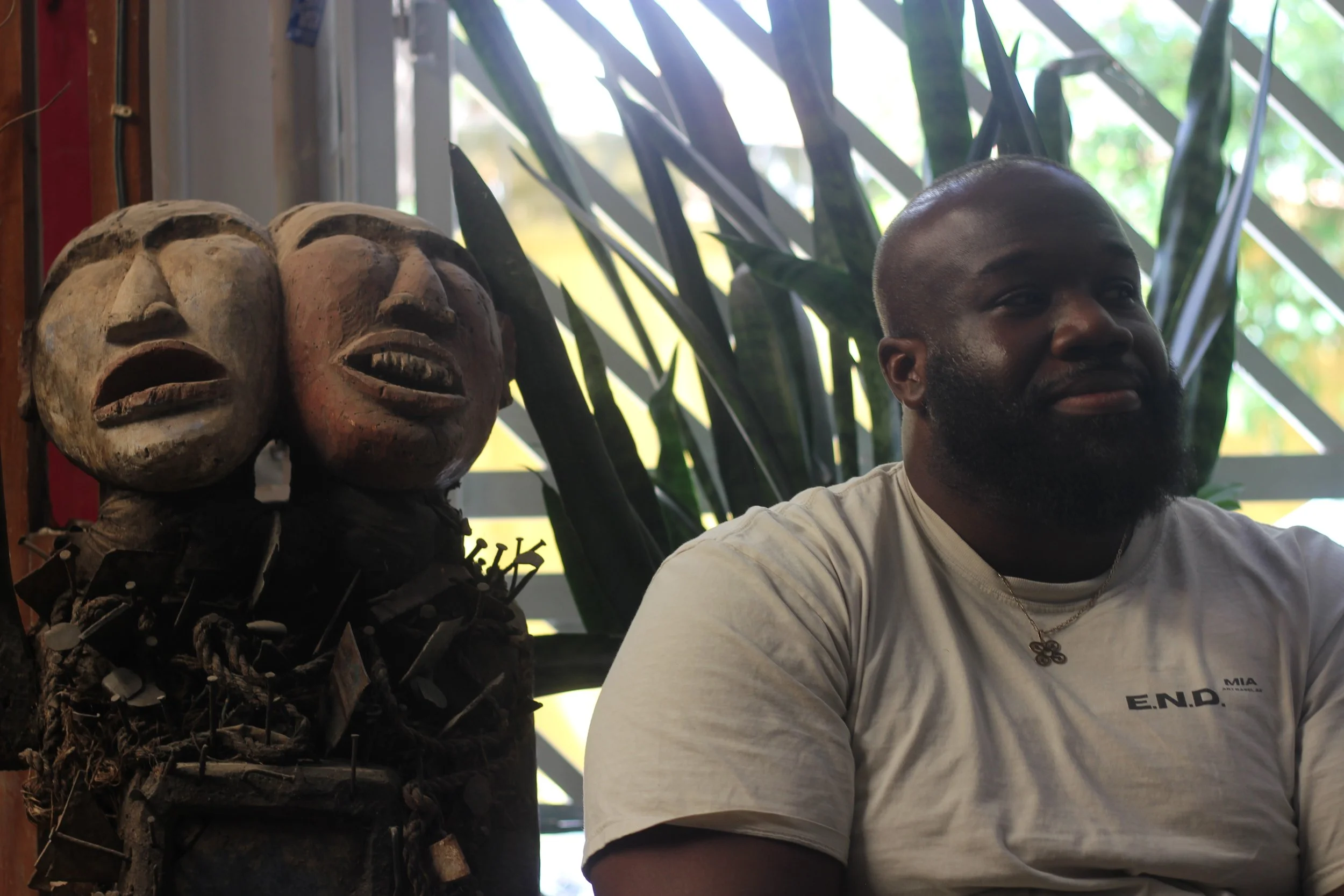
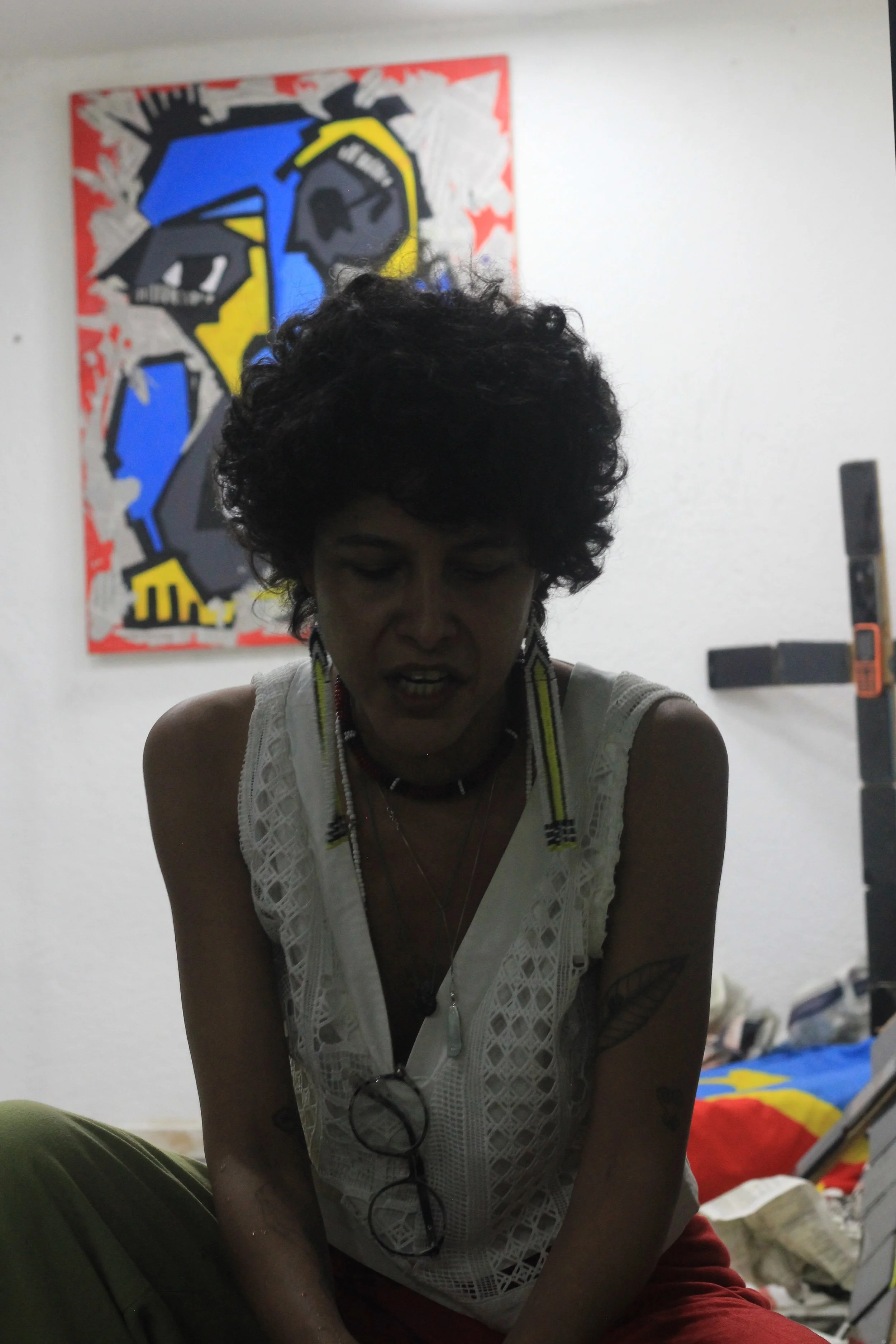
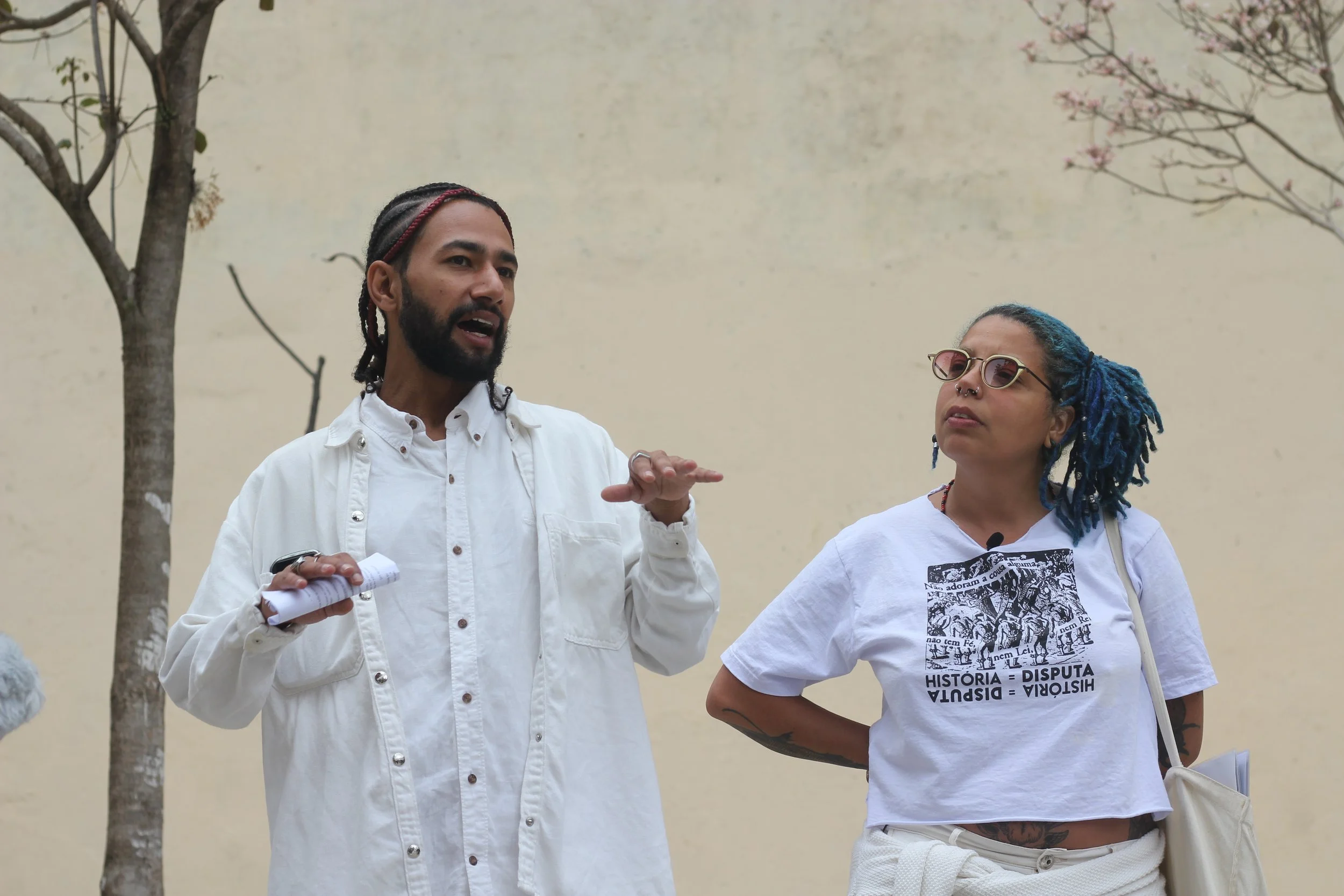
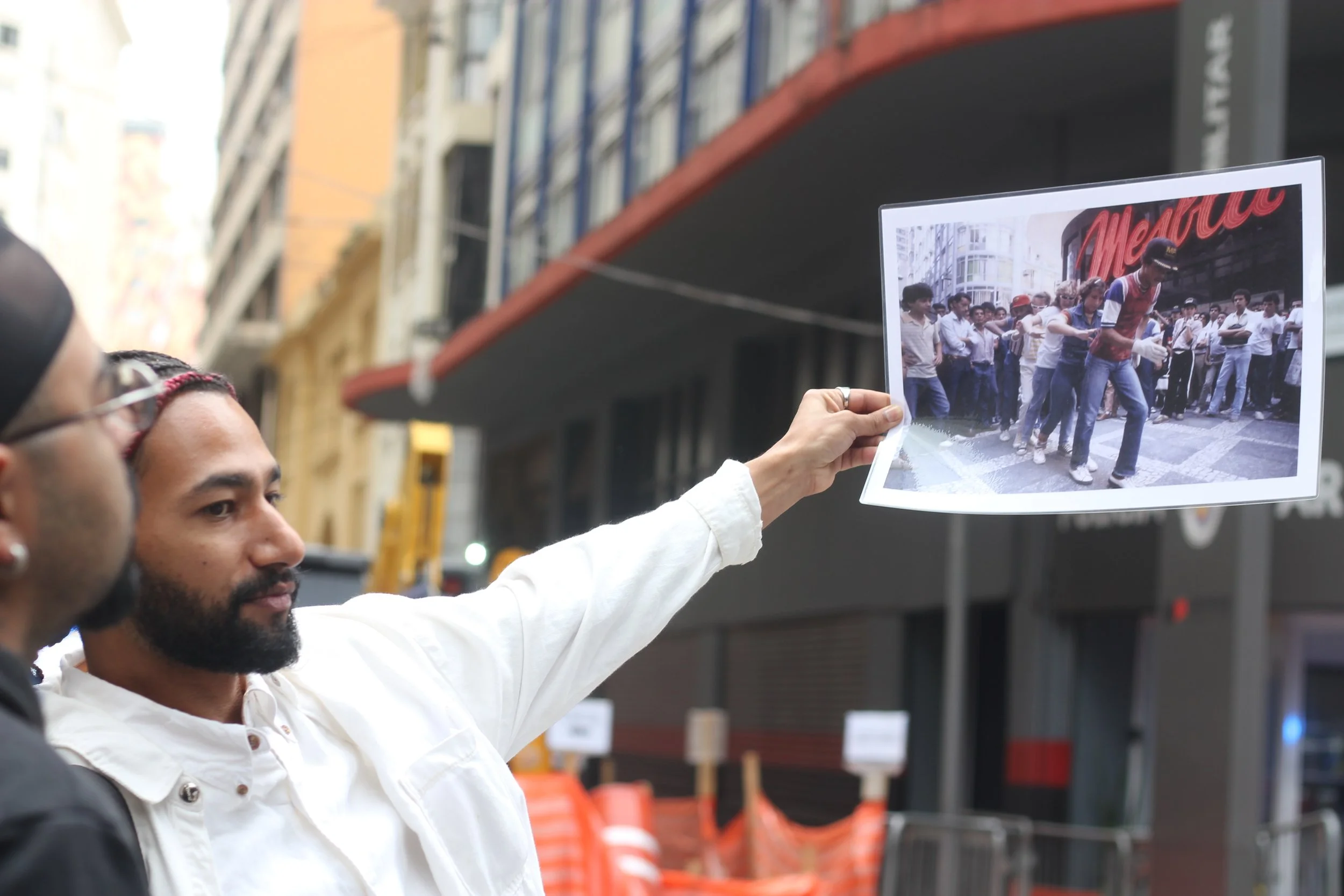
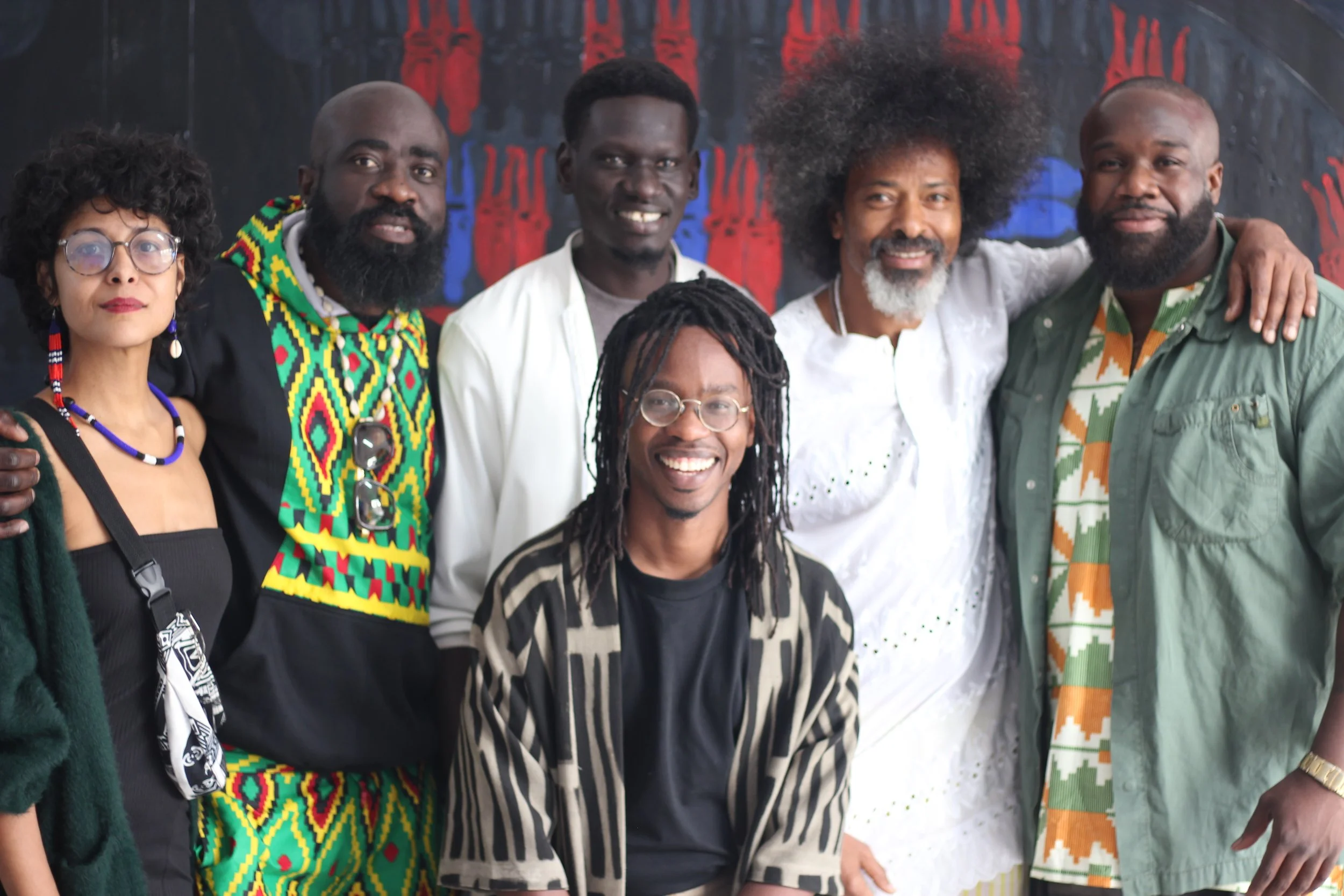
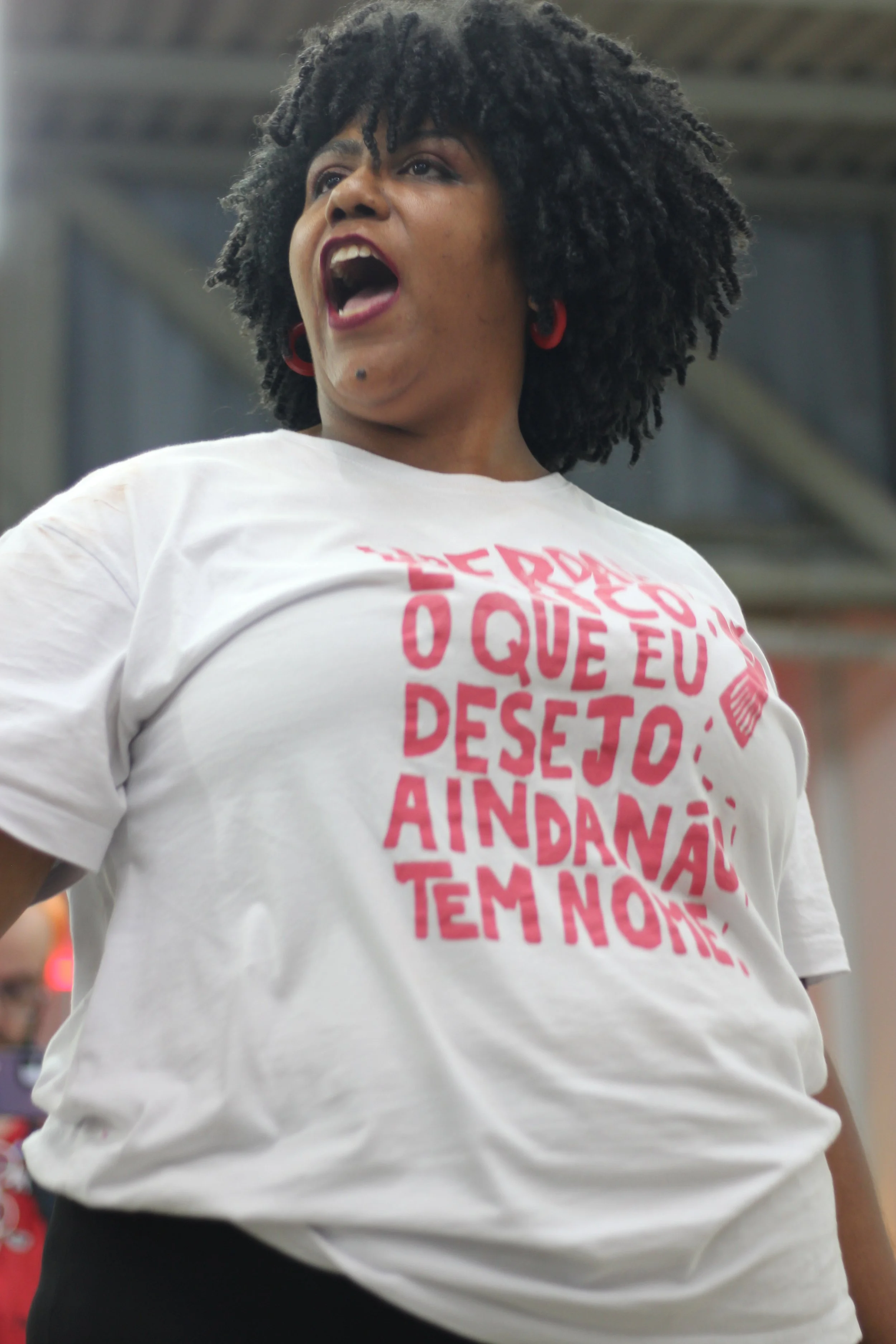
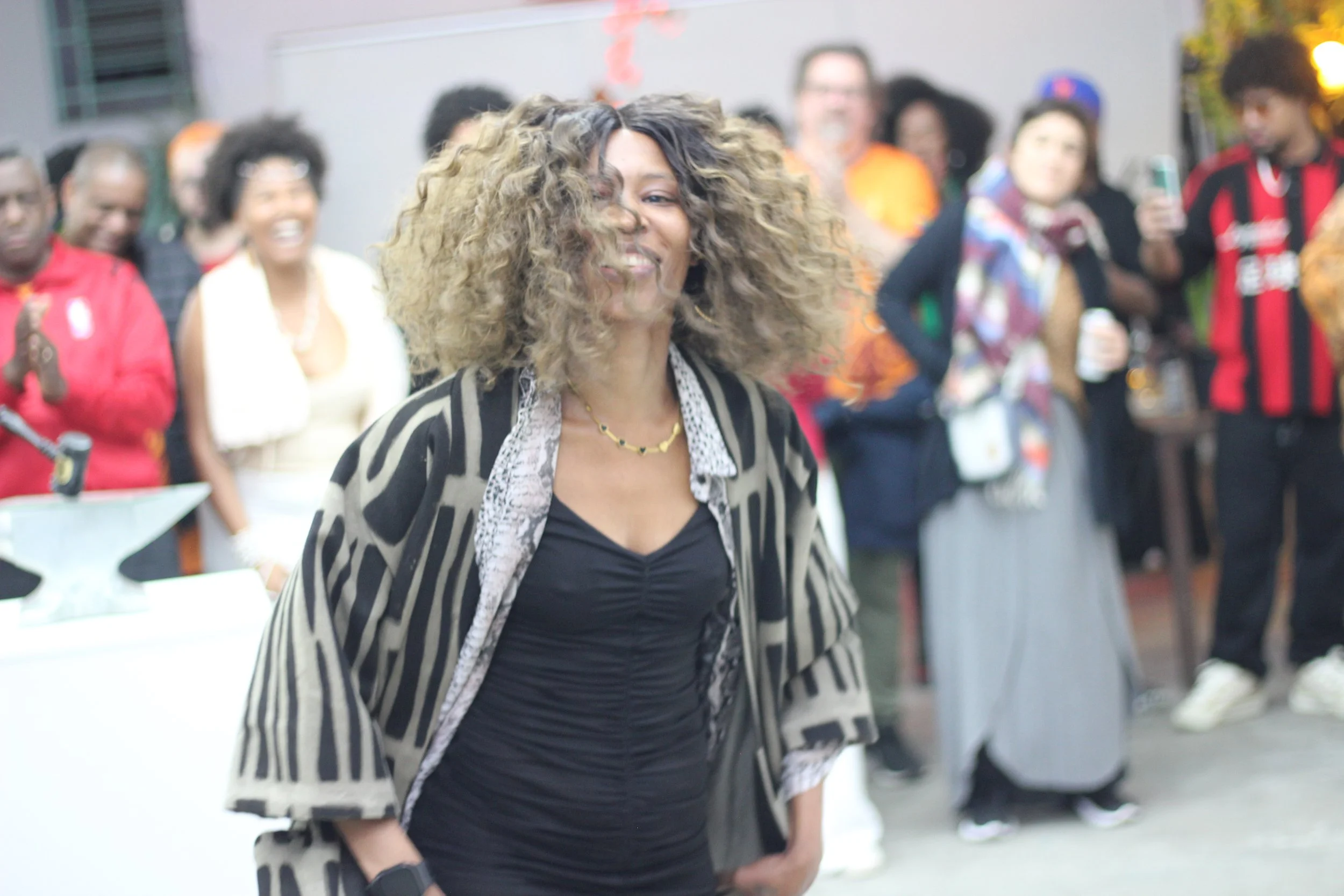
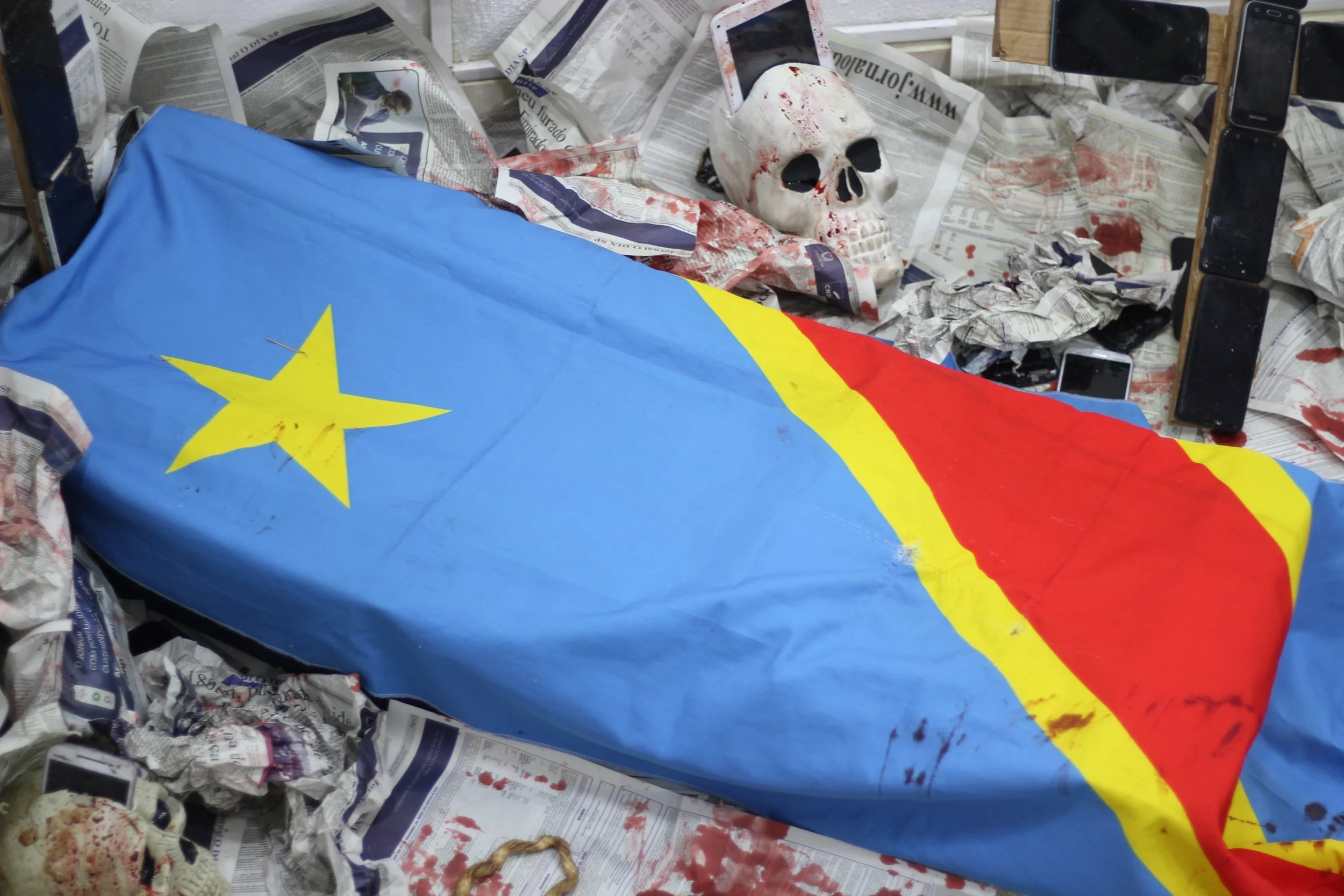
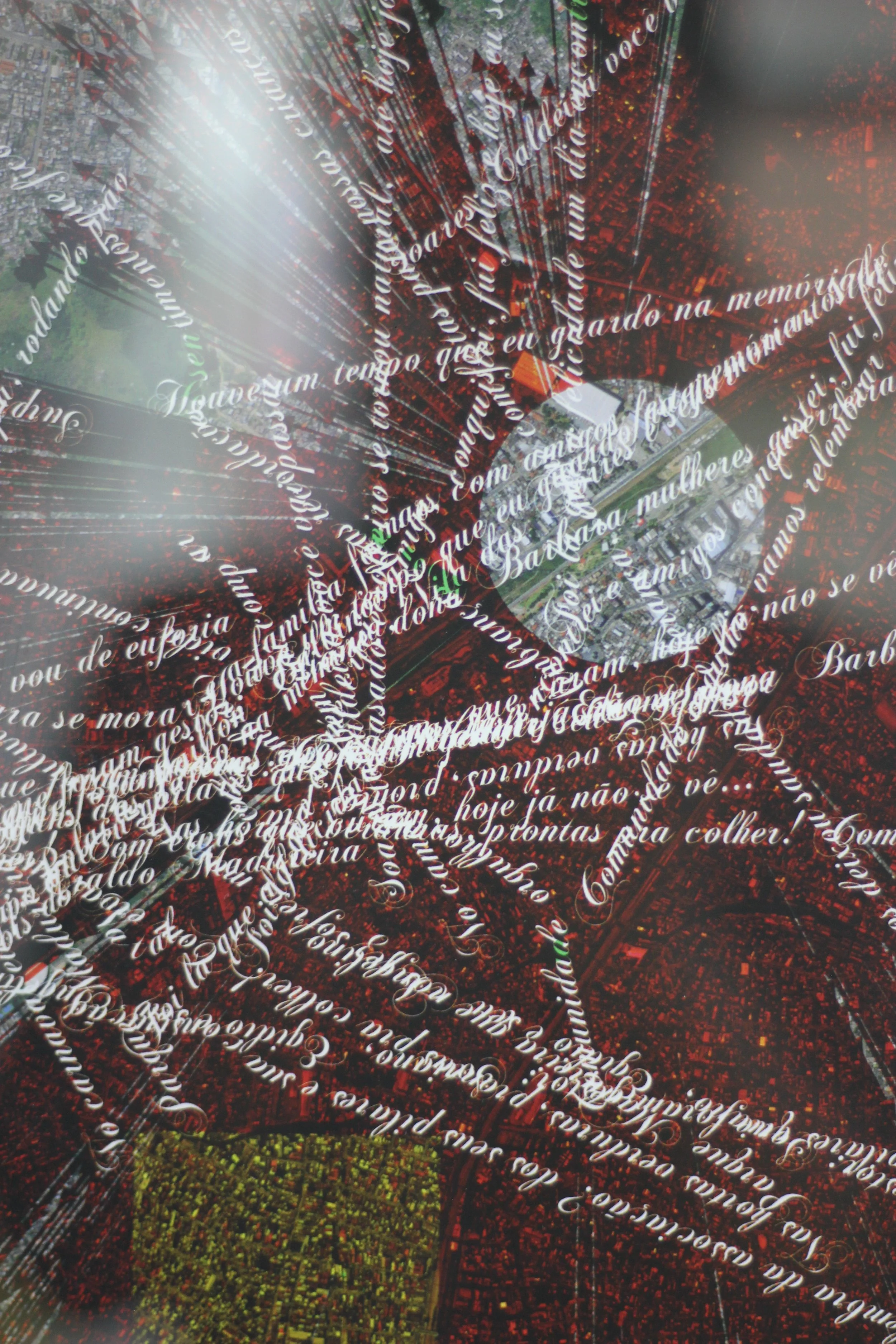
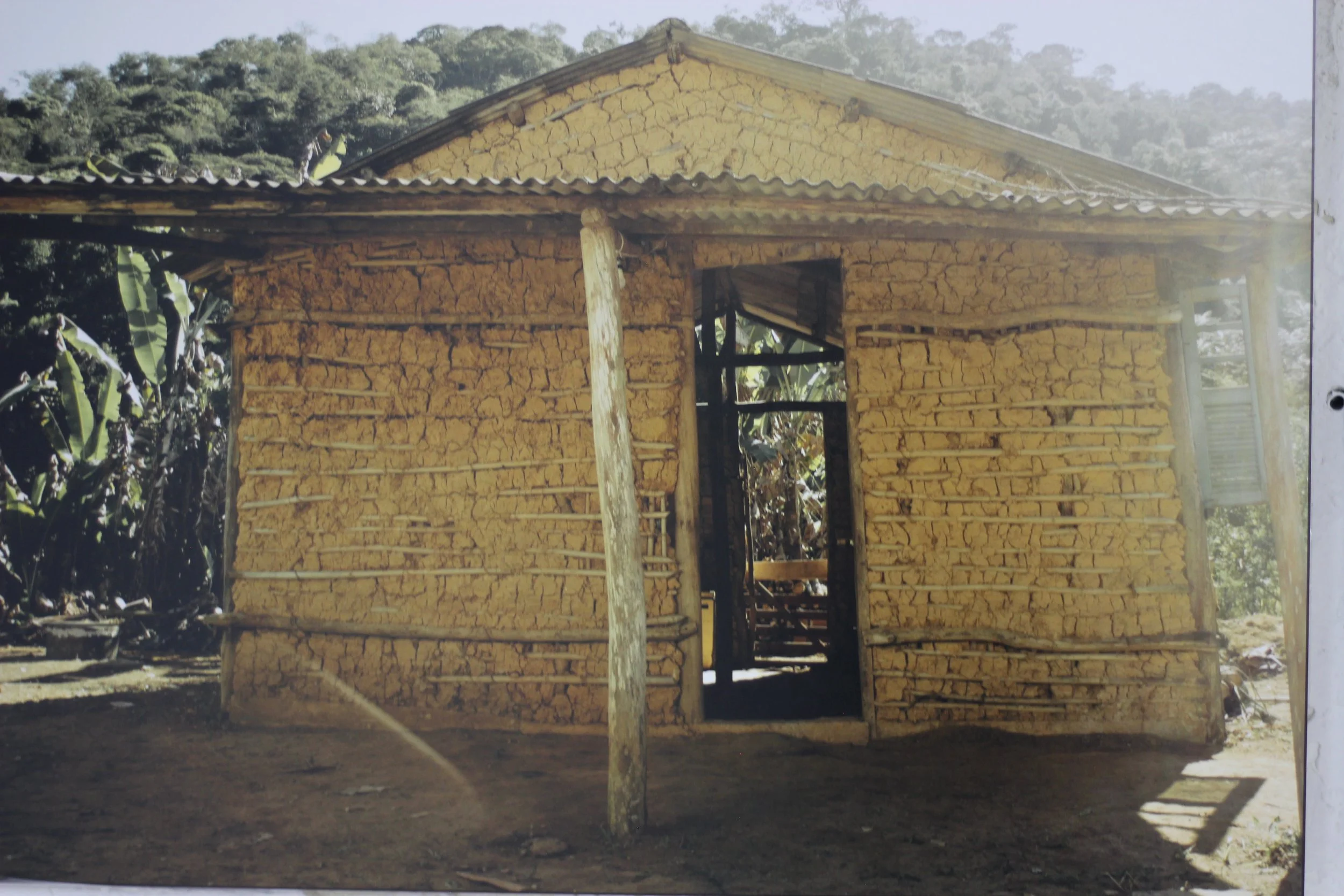
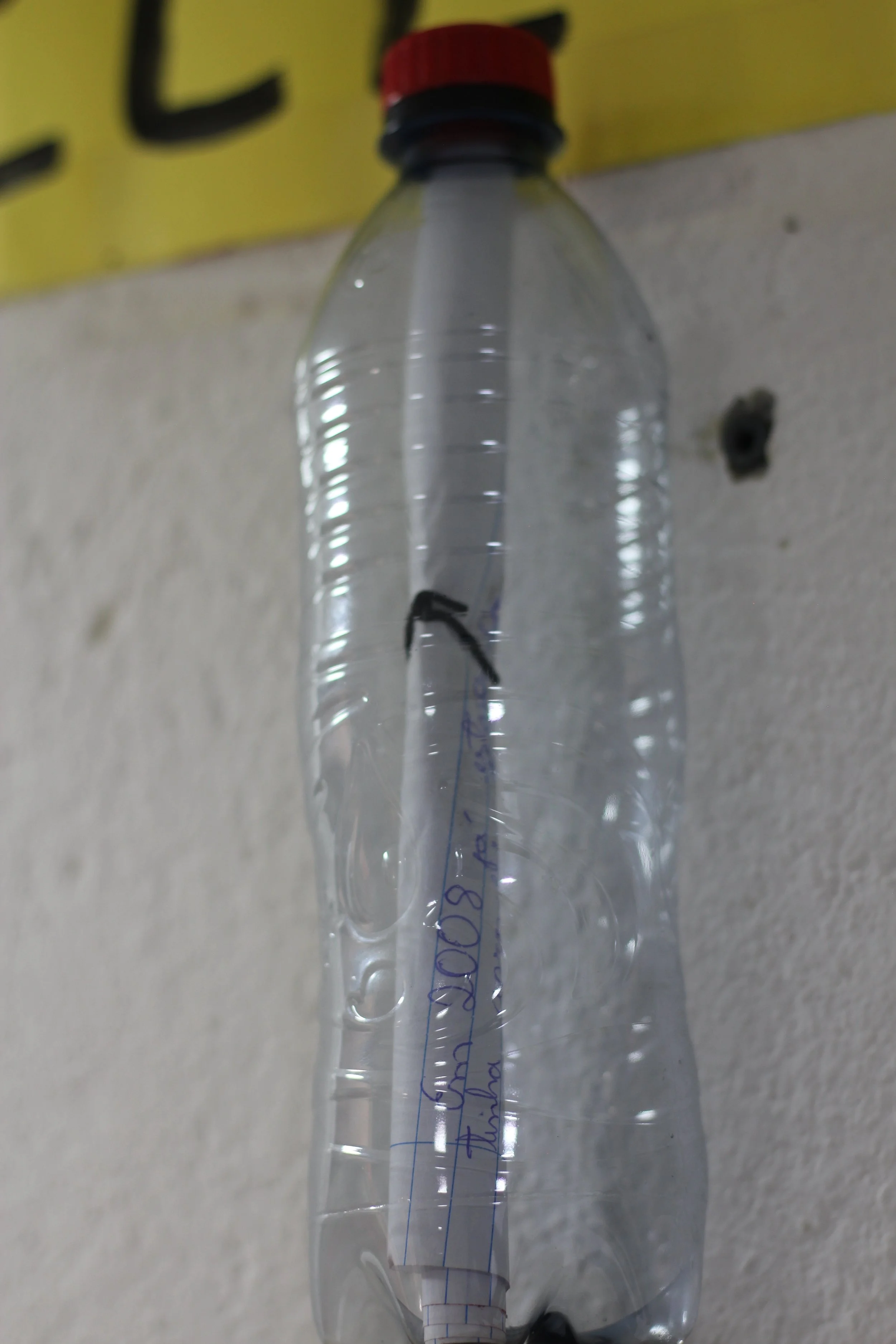

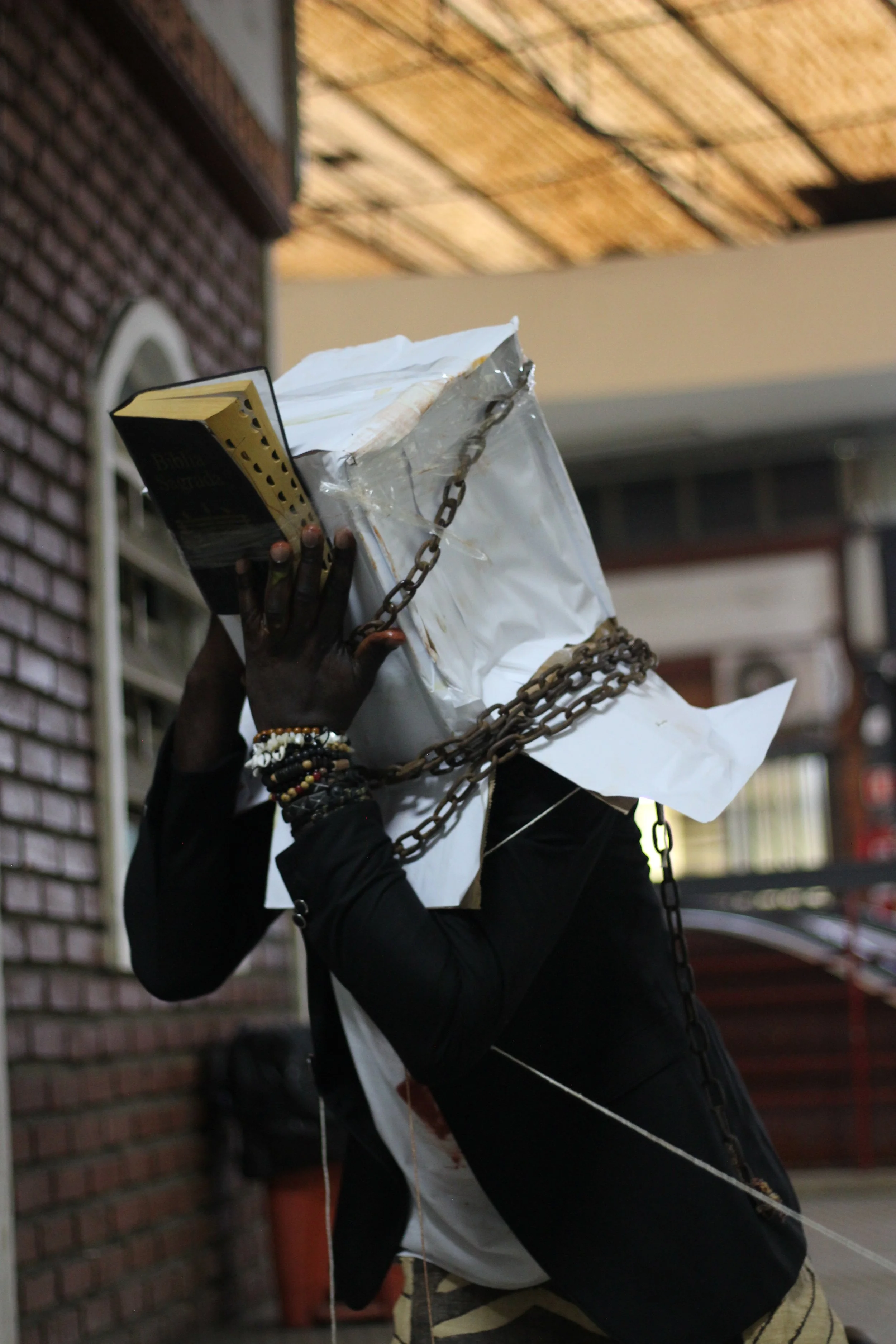
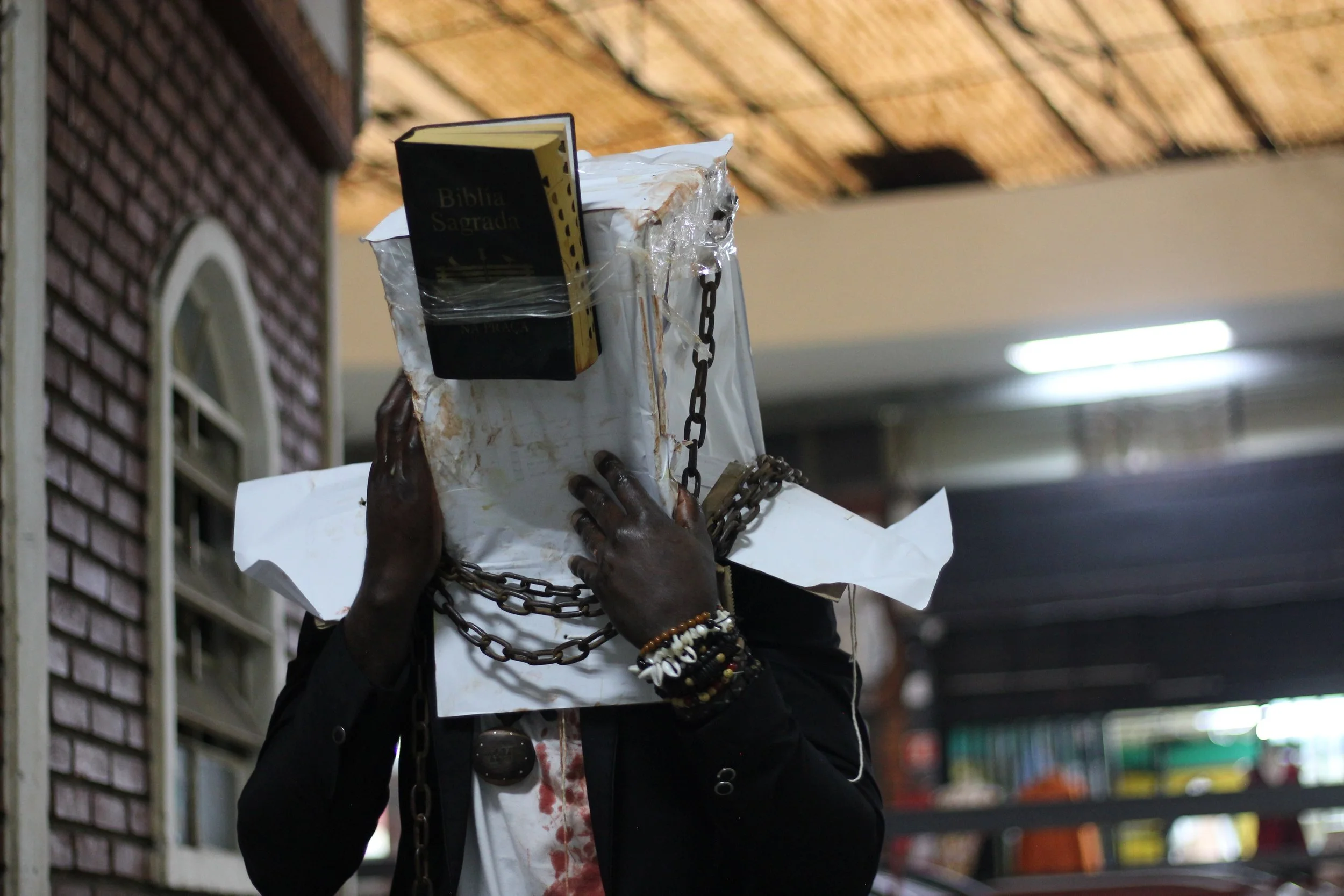






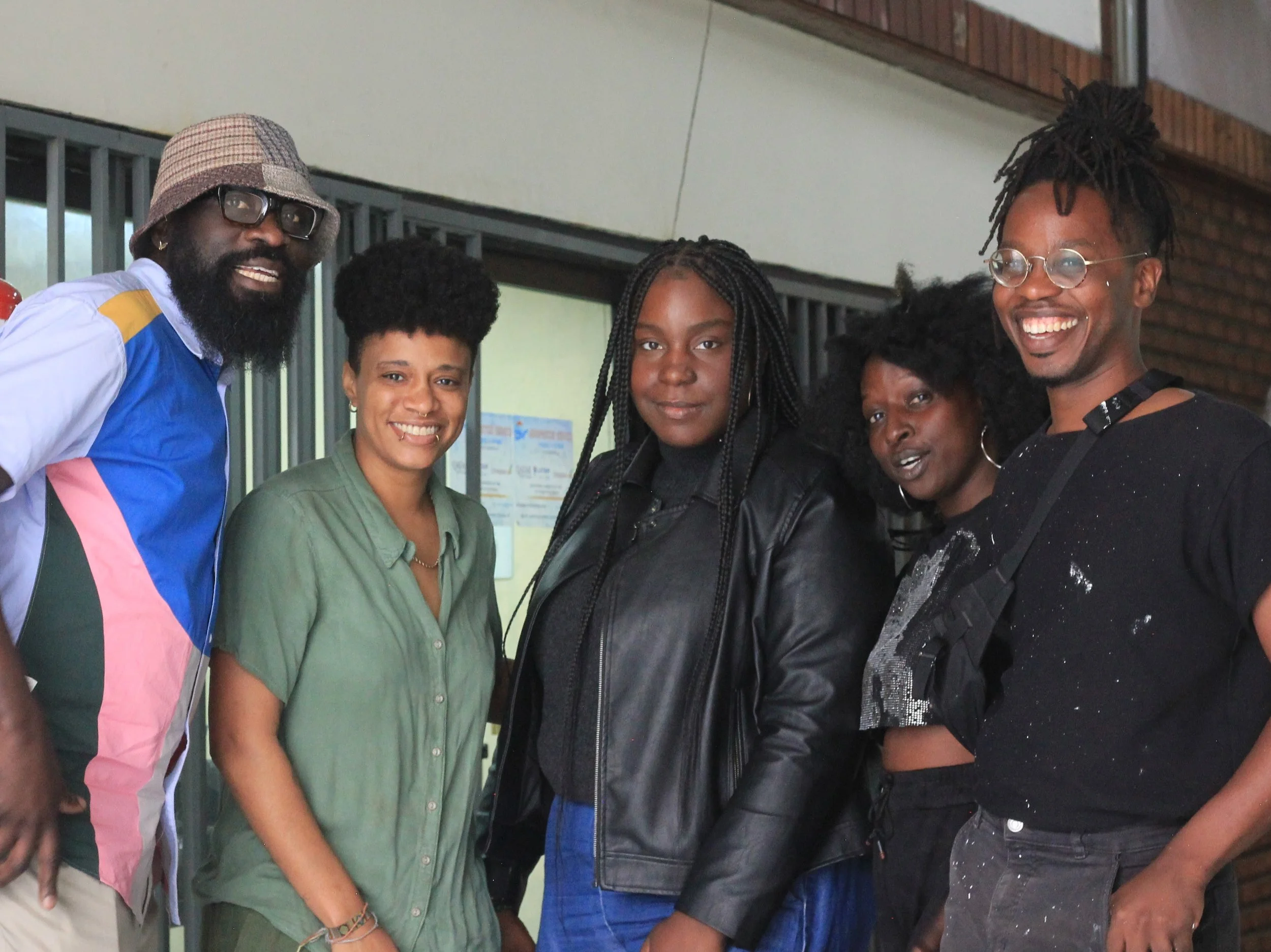
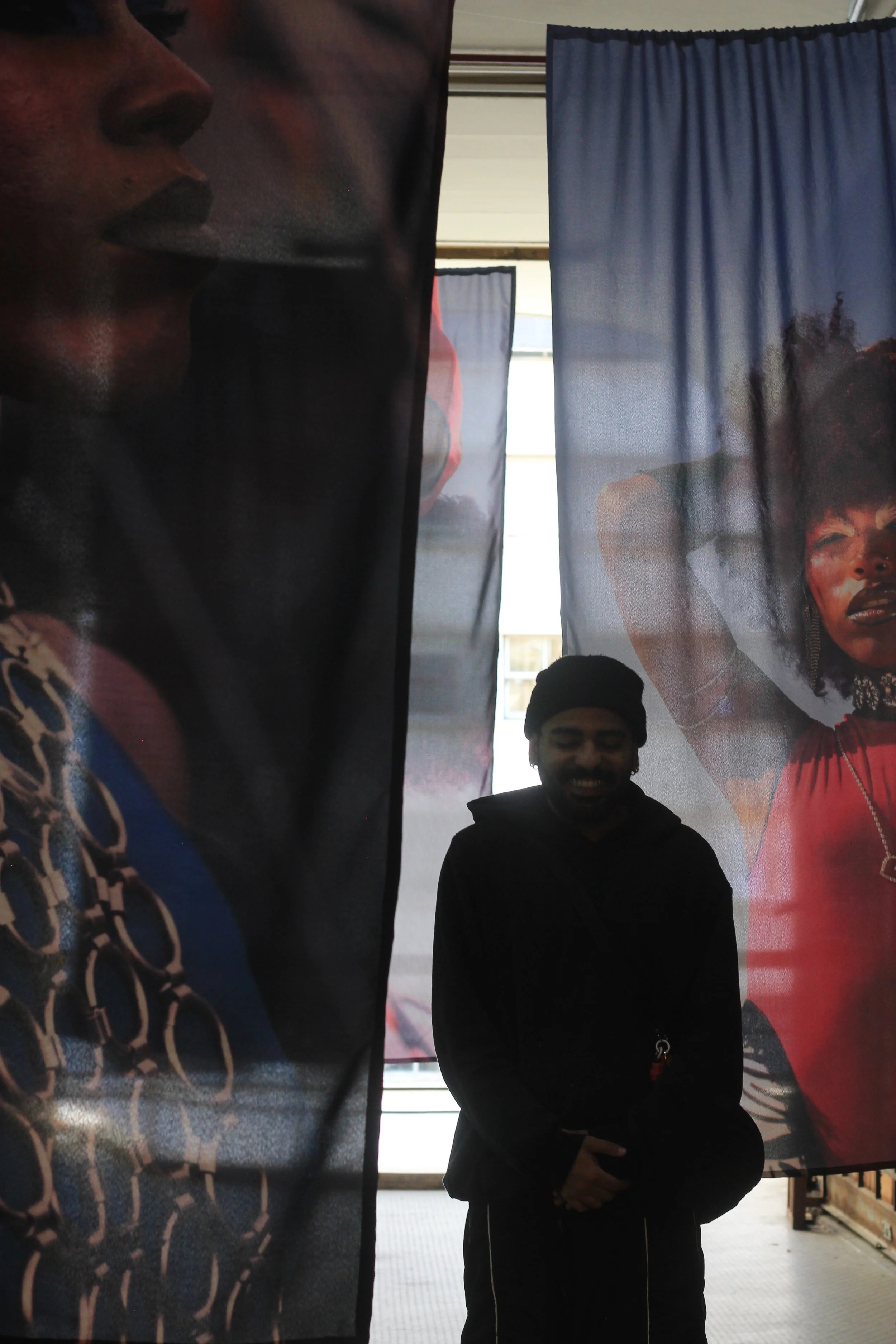
FOUNDEr’s Note
In September 2025, I co-directed a gathering of Black and Afro-diasporic artists, researchers, performers, and cultural workers in São Paulo for a week of shared work, reflection, and experimentation. The event, BLACK: Cite; Sight- Site, took place in Galeria do Reggae, an Afro-diasporic commercial hub in the city center. It wasn’t hosted in an official white-walled gallery or academic institution. Instead, we occupied a worn-out storefront and turned it into a living space for dialogue, art, ritual, and community.
At the heart of the program was the second iteration of BADS_lab — the Black Arts & Decolonial Sciences Lab — a residency and creative lab where invited fellows developed works-in-process dealing with memory, migration, incarceration, war, ecology, spirituality, and repair. Here, people weren’t invited simply to view finished art; they were invited to witness, join, and shape the rhythms of conversation and conviviality as they unfolded.
The gallery was humble. Before anything could begin, we scrubbed the floors and cleaned, patched, and painted the pockmarked, scuffed, mildewed walls. But that labor was part of the practice — it set the tone. This wasn’t about spectacle or prestige. It was about making space and being present. The place wasn’t trying to impress. It was real. You could feel the sweat in the walls.
Each day added something new. Installations appeared gradually. One wall filled with plastic water bottles containing messages from women incarcerated in Butantã. Another became a listening station. Sound spilled through open doors. Poems were read aloud. Snacks, smokes, coffee, juice, water, and beer were shared. At times, the space buzzed with noise and conversation. At others, it was silent and heavy. But always — alive and full of feeling.
The participants came from across the diaspora — São Paulo, Rio de Janeiro, Amazônia, and Bahia in Brazil; from the U.S., with roots reaching into the Niger Delta, Lake Volta, and the East African Rift; from South Africa and the Democratic Republic of Congo; from Cuba by way of Berlin, and from Haiti by way of Brooklyn. The gathering marked a subtle but important shift in the geography of influence: rather than centering the Global North, we rooted ourselves in the Afro-Atlantic South — its textures, tensions, and lateral rhythms of exchange. It wasn’t about broadcasting from the Northern metropoles outward, but about attuning to the force fields circulating between the minor metropole of São Paulo and places like Luanda, Havana, Dar es Salaam, Salvador, and beyond.
Some participants were artists; others were scholars, performers, documentary filmmakers, heritage workers, or organizers. Many carried stories shaped by migration, imprisonment, displacement, and bureaucratic exclusion. Some had never met; others were longtime collaborators. What brought them together wasn’t background, training, or even language, but a shared commitment to Black and Afro-diasporic life — as something that refuses containment, and thrives on motion and mutation.
The tone was never too academic. It was intimate. Vulnerable. Grounded in lived experience.
Each day built new layers. The boundaries between artist, audience, neighbor, and facilitator often dissolved. Passersby wandered in. Storekeepers next door dropped by, lingered, gave us Wi-Fi, helped us install works, and organize seating. People sat for hours.
BCSS didn’t try to explain Black or Afro-diasporic life. It held space for it—in its contradictions, tensions, and textures. It didn’t pretend solidarity is easy. Hard conversations happened. Translation was imperfect. Emotions sometimes ran high. But something real was built — not a “project,” but a kind of temporary home.
As an organizer, I wasn’t aiming to produce something for display. I was helping build a surround — a space where people didn’t have to perform for white institutions or prove their worth. Instead, we tried to be in rhythm with one another, however imperfectly. The work wasn’t to exhibit Blackness or Africanness, but to live it together — in polyphony and polyrhythm.
In a world that constantly extracts, flattens, and packages Black life for consumption, BCSS and BADS_lab offered a break — however brief. A rupture and aperture. A rehearsal for something else. It gave people space to move beyond survival and into relation. To show up with their grief, questions, memories, and joy—and be held without needing to translate.
What remains is more than documentation. It’s a felt sense: that Afro-diasporic gatherings can and must nurture difference. That Black art doesn’t need to be spectacle. That Black study doesn’t need to perform expertise. That healing the breach of the Middle Passage, the memory of the hold, and the ever-renewing schism between the Old World continent that keeps reinventing itself and the New World diaspora that never forgot it — is a practice of kinship.
2025 Fellows
-
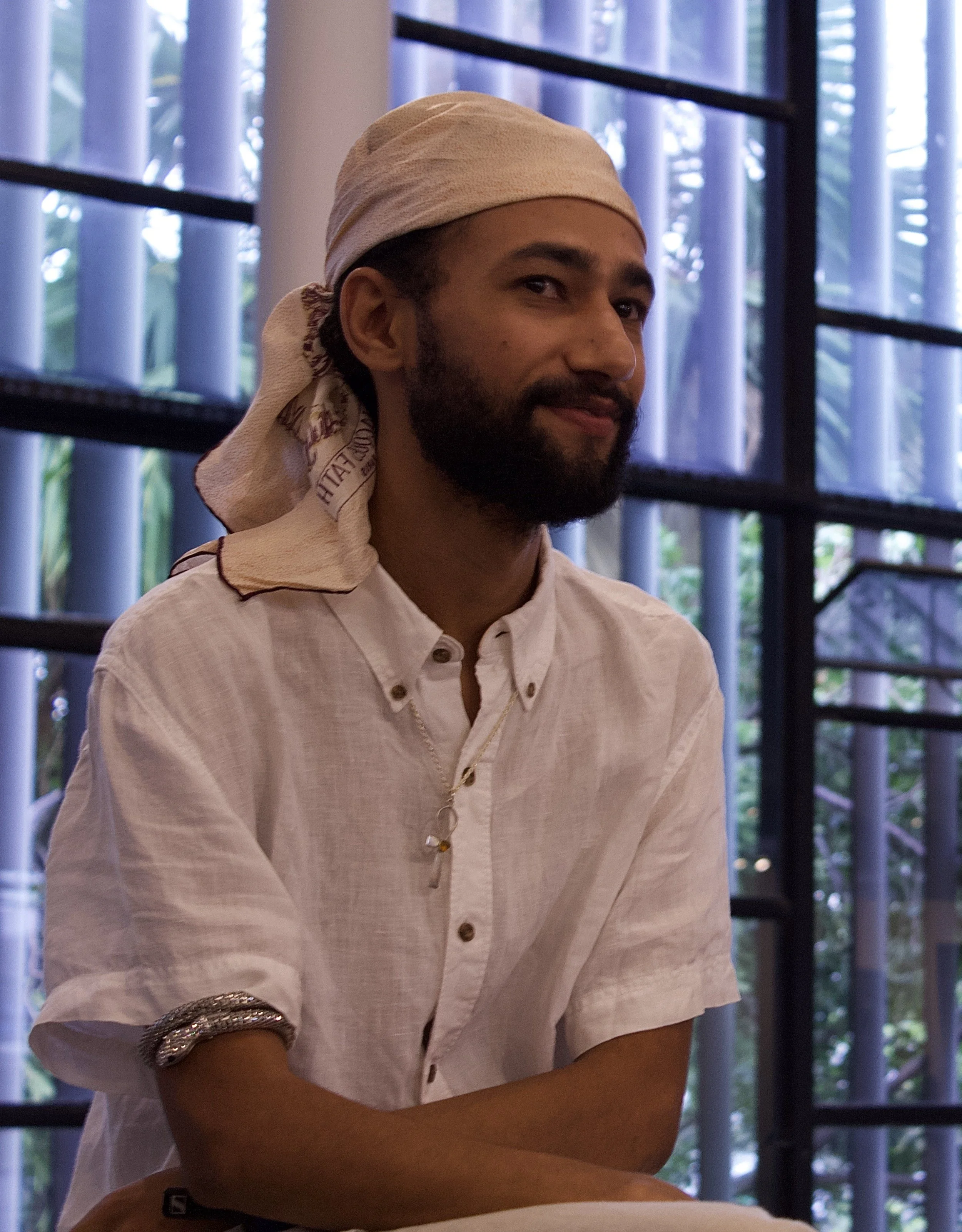
Aquiles Coelho Silva
FELLOW
Born and raised in the South Zone of São Paulo, Aquiles Coelho Silva is a researcher, writer, and emerging artist. He is the author of Vila Missionária: constituição e desenvolvimento da periferia em São Paulo (2019), awarded by the São Paulo Municipal Historical Archive, and of the poetry book Notas sobre o cultivo (2023). His current practice explores themes such as poetry, memory, music, and the relationship between land, space, and race. Aquiles has collaborated with research and art institutions such as the 35th São Paulo Biennial, Instituto Pólis, SESC/SP, Centro Cultural São Paulo, ANPUR, and USINA Technical Advisory, often as a member of the collective GIRA and the project História da Disputa. He holds a degree in Economics from Unicamp (2017), a master’s in Urban Planning from IPPUR/UFRJ (2024), and since 2022 has worked as a research assistant to Professor Denise Ferreira da Silva.
-

Cartografia Negra
FELLOWS
The Cartografia Negra Collective was created to reflect on, revisit, and re-signify historic Black territories in São Paulo—places of resistance or, conversely, sites once used for the sale, torture, or execution of enslaved people. Today, many of these places carry names and meanings that erase—or even contradict—those histories. We are a collective of young researchers seeking to raise awareness among the people of São Paulo about the memory of the city we live in. At present, 63 young Black people are killed every day in Brazil, according to data from the Senate’s CPI on the Assassination of Youth (2016). The genocide of the Black population happens both through physical extermination and through the erasure of its history. It is this dual process we want to expose, following the example of figures such as Casé Angatu and Abdias Nascimento.
-

Cecílio Henrique Costa & Tiago Almeida
FELLOWS
Cecílio Henrique Costa and Tiago Almeida, both born in Salvador, follow complementary paths that meet in the valorization of Afro-Brazilian ancestry and culture. Cecílio moved to São Paulo as a young man, where he is now producer and curator of the Humanities, Rights and Diversities Program at IEA-USP/Quilombo Inteligente, in partnership with Professor Gilson Schwartz. He also works as local producer for Coletivo Amazonizando-SP and for Master Ivamar dos Santos, and he wrote the script for the film Dia de Iemanjá. His artistic and academic research focuses on the quilombos of Jongo de Pinheiral and the Vale do Café, documenting oral traditions and jongueiro aesthetics in Rio de Janeiro’s Paraíba Valley. Tiago, in turn, built his career between Rio de Janeiro and São Paulo as a visual artist, with solid experience in film and TV post-production that now feeds his own creative practice. In his documentaries and audiovisual works, he celebrates Brazilian culture and ancestry, exploring social, environmental, and spiritual themes, with particular attention to African-based religions and the tradition of Jongo—producing an audiovisual language that connects people, territories, and memories. -

História da Disputa
FELLOWS
História da Disputa: Disputa da História is a project led by women historians dedicated to research, production, and dissemination of historiographical content rooted in the “History of the defeated”—that is, in documents, testimonies, memories, and dynamics produced by social actors usually ignored by traditional history. Its methodology involves occupying public spaces to create debates that incorporate people’s knowledge and lived experiences, seeking, through such exchanges, to intervene in how those spaces are used and narrated, and to challenge the hegemonic narratives that define them.
-

Joss Dee & Natasha Felix
FELLOWS
Natasha Felix, a poet and performer born in Santos (São Paulo, Brazil), and Joss Dee, a DJ and music producer from Luanda (Angola), collaborate in the performance APUPÚ – onde os corpos vibram, a sound and literary experiment that stages a dialogue between Brazil and Angola.
-
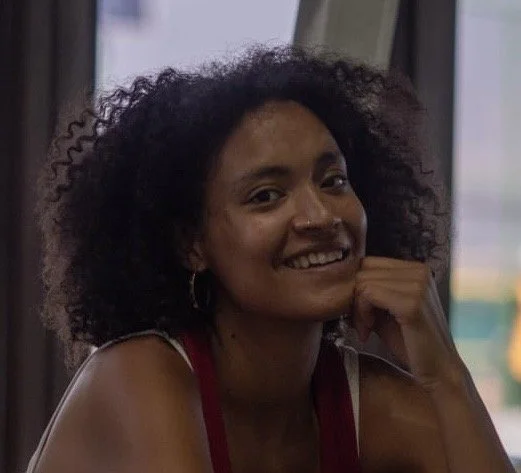
Mônica Garabito
FELLOW
Mônica Garabito is a researcher and artist based in São Paulo. Born in Cuba and raised in Germany, she studied Anthropology and Documentary Film across institutions in Cuba, Mexico, and Germany. Her work proposes new ways of listening and being present, engaging with Afro-diasporic communities, collective memories, and non-hegemonic epistemologies, while questioning colonial ways of seeing, hearing, and narrating the world.n goes here -
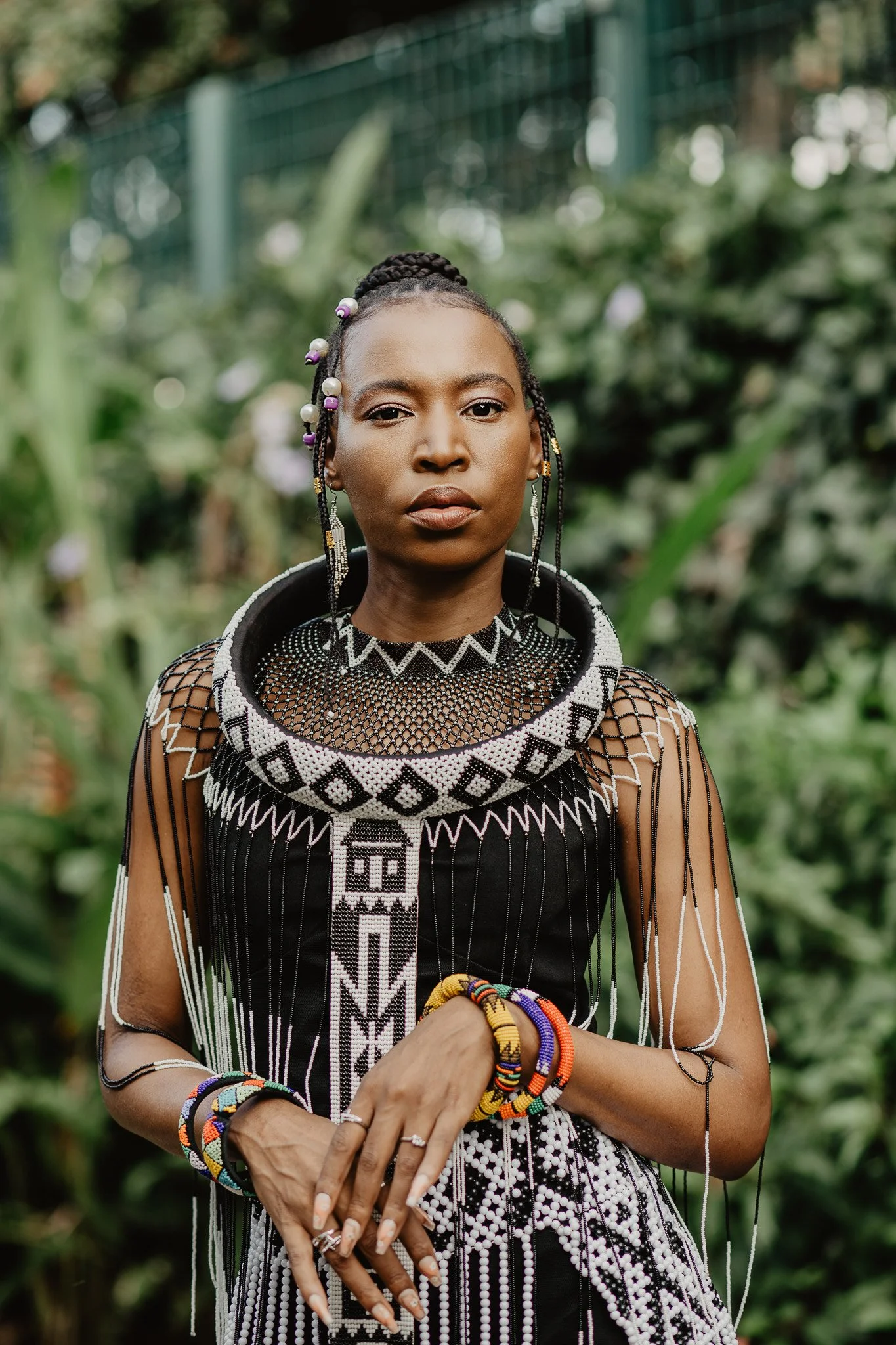
Nduduzo Siba
FELLOW
Nduduzo Siba is a multidisciplinary artist, born in KwaZulu-Natal, South Africa, and living in Brazil for the past 12 years. Her trajectory brings together photography, documentary film, theater, dance, music, fashion, and acting, always guided by a vision that links art and social transformation. As a photographer and filmmaker, she seeks to tell stories that reveal identities, memories, and collective struggles, highlighting the cultural strength of diverse communities. In theater and dance, she finds ways to express the body as a site of resistance and poetry. In music and performance, she uses her voice as an instrument of connection and healing. Her work is imbued with activism, the desire to give visibility to silenced experiences, and the drive to weave dialogues between her African roots and her Latin American life. Between borders, she moves freely, turning her trajectory into a collage of images, sounds, and gestures that celebrate diversity, ancestry, and the future. -
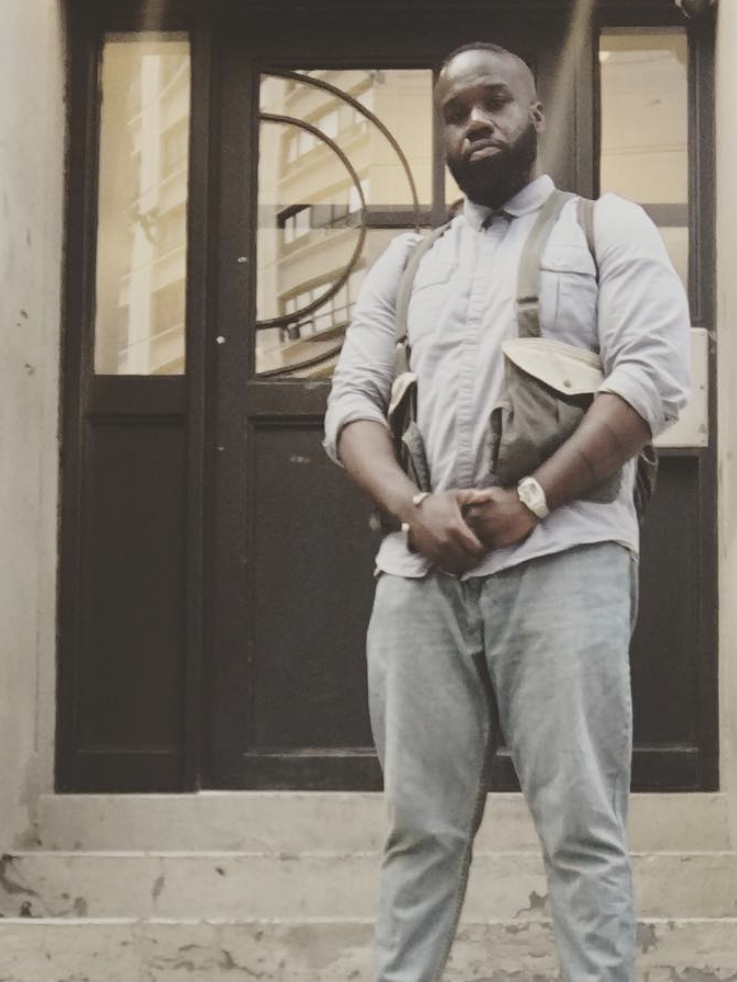
nii.a.k
FELLOW
Allen Kwabena Frimpong is a conceptual artist and urbanist dedicated to cultural design as a means of building community wealth on a global scale. He is the founder of ZEAL, a cooperative alliance of creative studios formed by Black diaspora artists, featured in the New York Times, ABC Nightline, and Hyperallergic. As a conceptual artist, he creates multimedia anthologies through sound installations and public art exhibitions. A 2024 Open Society Foundations Equality Fellow, he is currently producing The Remedy is Solidarity, a global multimedia anthology on reparations. Previously, he led Old Money, New System, a community of practice funded by the Andrus Family Fund that supports resource mobilization for social movements focused on redistributing wealth through the solidarity economy. He has also worked as a senior researcher at PolicyLink and co-founded Liberation Ventures, an organization building networks and practices to advance a culture of reparations in the U.S. His work has been featured in books such as Decolonizing Wealth. He currently chairs the board of Resist, one of the oldest public foundations tied to social movements in the U.S.
-

Sarah Brito
FELLOW
Sarah Brito is an artist by vocation and a researcher by training. Since 2010, she has dedicated herself to the study of intangible heritage, focusing on practices, rituals, and territorial expressions. She has joined and co-founded cultural and art collectives, participated in the National Council of Memory Points, and founded Observatório Brasil Profundo, an initiative dedicated to Brazilian ancestral practices. A native of Belém in the Amazon region, she is a CNPq fellow at the Museu Paraense Emílio Goeldi, working on the Museu Terra Indígena project. Her artistic production spans photo-performance, collage, audiovisual, and interventions, exploring body, territory, and time. She signs her work as Sarah Maria, honoring her late mother, also named Maria and also an artist, from whom she learned that human experience is shaped by memory and the re-signification of diasporic lives. -
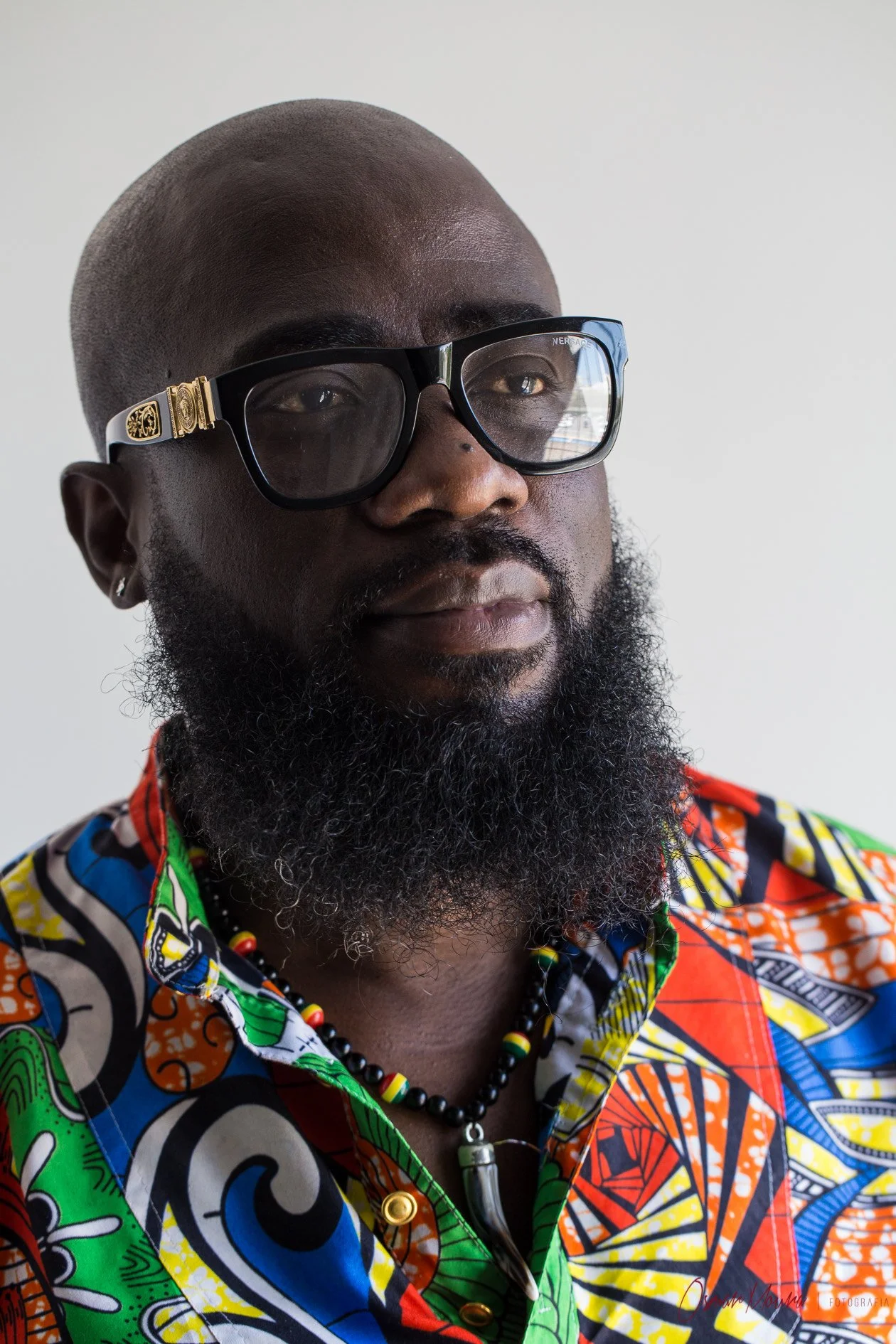
Shambuyi Wetu
FELLOW
Shambuyi Wetu is a visual artist, muralist, art educator, actor, sculptor, and performer. A Congolese artist trained at the Academy of Fine Arts in Kinshasa, he has lived in Brazil since 2014, working actively in the art scenes of São Paulo and Rio de Janeiro. His practice spans painting, sculpture, and performance, addressing urgent issues of contemporary African and Afro-Brazilian life. Through visual arts and performance, he investigates the experience of the African diaspora, the Black body, ancestry, and cultural resistance. From his early years in the Democratic Republic of Congo, with exhibitions in museums and cultural centers in Kinshasa, to his artistic career in Brazil, his trajectory has been marked by displacement, memory, and cultural exchange. His diverse and dynamic work connects territories and artistic languages, inviting audiences to reflect on identity, migration, and belonging.
2025 LAB DIRECTORS
-
Founder & Director
Muindi Fanuel Muindi is a social practice artist, philosopher, and poet, with Lacustrine Bantu roots in the Rift Forests of Eastern Congo and the Mara Wetlands in Tanzania.
Muindi is co-founder of the Fyrthyr Institute for Unsettling Technologies, coordinator of the “Prototyping Social Forms” and “Alter-Eco” research streams at the Synthesis Center, an organizer at the Center for Concrete and Abstract Machines, an associate editor of the journal AI & Society, and co-producer and audio engineer for the Forested Niches podcast. Previously, Muindi was a member of the “After School”, “Technologies of Critical Conscientization”, and “Unwriting Nature” research communities at the Center for Art Design + Social Research.
-
O.D. Enobabor is a geographer, critical theorist and social practitioner. Co-architect of Black: Cite; Sight– Site, Diane situates praxis concerned art practice and social movement organizing strategies such as BLACK: Cite; Sight- Site as an operational technology liberatory 'future planning'. Her work is informed by her identity, an Itsekiri Texan born to Nigerians from Delta State who has lived and worked through the United States, Caribbean and Brazil. She is currently based between São Paulo, BR and New York, NY. She leads and organizes with Africa is Everywhere, a pan-african feminist grassroots initiative, and is also the principal/founder of Misan Consulting.
Special Guests
-

Bonaventure Soh Bejeng Ndikung
Bonaventure Soh Bejeng Ndikung is the chief curator of the 36th Bienal de São Paulo (2025). Born in 1977 in Yaoundé, Cameroon, Ndikung is a prominent figure within the global contemporary art scene. His unique, interdisciplinary trajectory combines institution building as a practice, curatorial praxis with emphases on performativity, sonic, installative and visual arts, critical theory and discourse with an academic background in medical biotechnology and biophysics. Ndikung’s commitment to the intersection of art and science, together with his innovative vision, culminated in his appointment as director and chief curator of Berlin’s Haus der Kulturen der Welt (HKW) as of January 2023, after his tenure as founding director of SAVVY Contemporary. Ndikung is also a professor at the weißensee academy of art berlin.
-
Kábíyèsí Oba Adekunlé Aderonmu Oba Ògbóni Iwashe
President of the Centro Cultural Africano in São Paulo, King of the World Fraternity of Ogboni, and Peace Ambassador in the Americas. A Nigerian who has lived in Brazil for two decades, he was recognized as the founder of the Africa Brazil Award and Àsè Isè, which have honored numerous religious leaders, politicians, artists, and entrepreneurs who, in different ways, have contributed to keeping African culture alive in the country. In 1999, he founded the Centro Cultural Africano, a non-profit cultural organization with the mission of strengthening exchanges between Brazil and Africa.
-

Glaucea Helena de Britto
Glaucea Helena de Britto is manager of Terreirão Cultural, advisor and coordinator of educational spaces at the Akoma Institute, and assistant curator at Museum of Art of São Paulo (MASP), where she coordinated the MASP Escola and MASP Professores programs and co-curated the exhibitions Women Affected by Dams: Embroidering Rights (2025), Lia D Castro: Everywhere and Nowhere (2024), Brazilian Histories (2022), and Dalton Paula: Brazilian Portraits (2022). She also co-curated the exhibition Lélia in Us: Popular Celebrations and Amefricanity (2024) at Sesc Vila Mariana. She was the proposing coordinator of the project A Journey Through the African Diaspora (American Alliance of Museums). She is currently part of the team for the project Memorial RemédiosRA (University of North Carolina School of the Arts).
-

Allan da Rosa
Allan da Rosa is an angoleiro (capoeira practitioner) and historian. He holds a Master’s and PhD in imagination, culture, and education from USP. He is the author of Ninhos e revides: estéticas e fundamentos, lábias e jogo de corpo (Nós, 2022), Águas de homens pretos: imaginário, cisma e cotidiano ancestral em São Paulo (Veneta, 2021), Pedagoginga, autonomia e mocambagem (Jandaíra, 2019), Zumbi assombra quem? (Nós, 2017), and Reza de mãe (Nós, 2016).
-

Josafá Neves
Self-taught African-Brazilian artist, born in Brasilia. In 25+ years of full dedication to the art practice, he has participated in group and solo shows with oil paintings, drawings, sculptures, ceramics and installations in cities such as Brasilia, Rio de Janeiro, São Paulo, Paris, Massachusetts, Havana and Caracas. The painting practice is of indisputable and utter importance to the artist. One of the alluring elements of Josafá’s works lies precisely in the conscientious devise of creating paintings from within a black skin: all canvases are painted black before the application of any other color. The richness and atmosphere created are unique.
-

No Martins
São Paulo born and based artist, No Martins investigates the daily interpersonal relationships of Afro-Brazilians in urban daily life. His work objectifies issues of territorialism, access, racism, mortality and the high population of incarcerated Black Brazilians. The artist uses painting, performance, and objects to provoke viewers and expose the steep differences in lifestyle due to gender, race, and social class.
-

Olivier Marboeuf
Olivier Marboeuf is an artist, storyteller, independent curator, cultural theorist, and film producer. In the 1990s, together with the artist and writer Yvan Alagbé, he founded Amok, a comic book publishing house. Between 2004 and 2018, he was the artistic director of Espace Khiasma, a space dedicated to promoting the visual arts and literature. Having worked in multiple creative fields, he also dedicates his time to audiovisual work, producing films and documentaries.
In his artistic practices, Marboeuf explores themes such as imperialism, servitude, and the consequences of racial oppression, which feed into his work, characterized by being a space for reflection and social and political debate, anchored in post-colonial theories, indispensable tools for putting emancipatory strategies into practice. It is an approach that seeks not only to revisit the past but also to open up new ways of narrating and representing history.
2025 LAB FACILITATORS
-

Mariama Bah
-
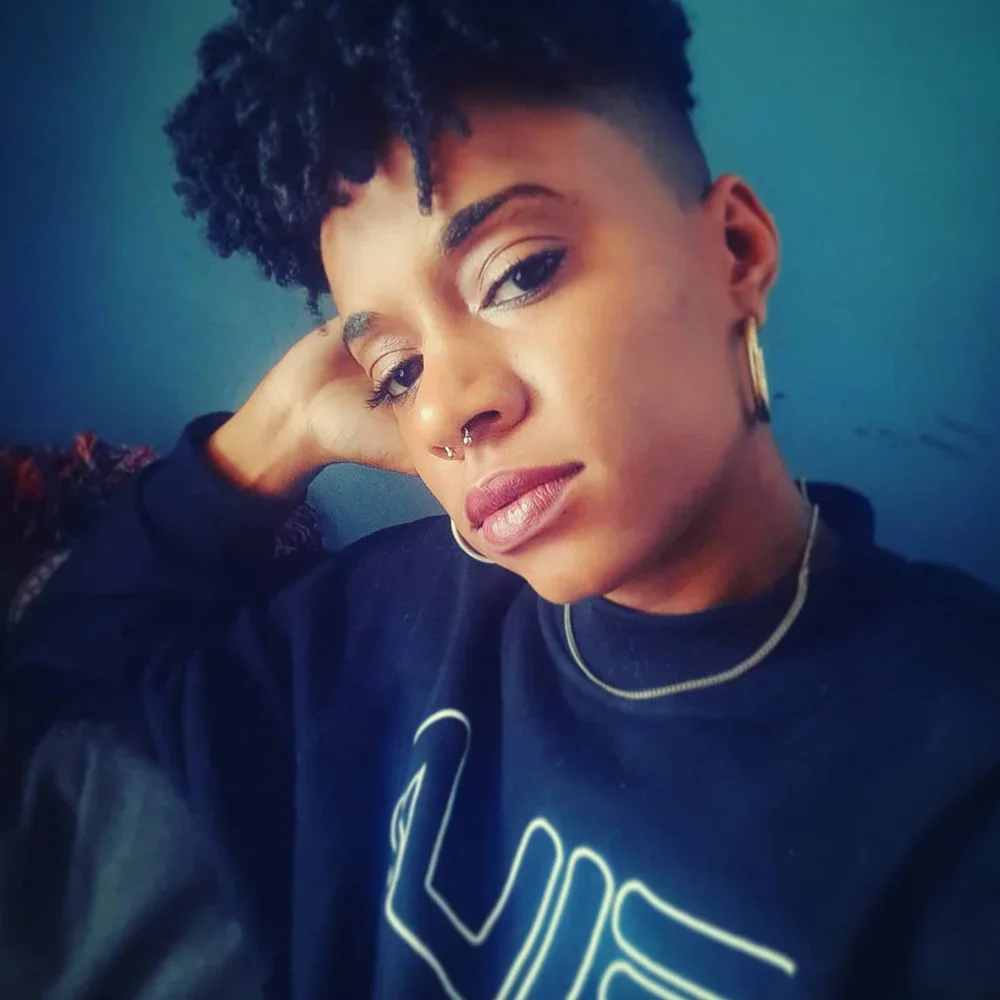
Philomen Dorceant
schedule of events / agenda de eventos
Monday 1 de Setembro 2025
01/09/2025 18:00-21:00PM
Happy Hour & Celebration (Open to the Public) / Happy Hour & Celebração (Aberto ao Público)
📍 Jerky’s: Cozinha Caribenha, R. Bento Freitas, 158 – República, São Paulo
Terça/Tues 2 de setembro 2025
02/09/2025
3:00–4:30 pm / 15h–16h30 — Fellows’ Open Studio at Galeria / Estúdios Abertos dos Fellows na Galeria
5:00–6:00 pm / 17h–18h — Film Screenings at Theatre / Exibição de Filmes no Teatro
6:00–8:00 pm / 18h–20h — Roundtable & Talkback / Mesa-redonda & Conversa
Com Oba Adekunle Aderonmu, Bonaventure Soh Bejeng Ndikung, Allan Da Rosa e Glaucea Helena de Britto
Moderação: Mariama Bah
📍 Teatro SESC 24 de Maio, Rua 24 de Maio, 109 – República, São Paulo
Wed./Quar. 3 de Setembro 2025
03/09/2025
11:30–1:00 pm / 11h30–13h00 — Gallery tour and IFÁ symbolism with Oba Adekunle Aderonmu at IFÁ Imports / Visita guiada e simbolismo do IFÁ com Oba Adekunle Aderonmu no IFÁ Imports
📍 Centro Cultural Africano, Rua Gaspar Ricardo Júnior, 112 – Barra Funda, São Paulo
4:00–6:00 pm / 16h–18h — Fellows’ Open Studio Days at Galeria / Estúdios Abertos dos Fellows
📍Galeria Presidente (Galeria do Reggae), Sala 26, 4 Andar, Rua 24 de Maio, 116, República, São Paulo
Quin./Thurs. 4 de Setembro 2025
04/09/2025
4:00–6:00 pm / 16h–18h — Fellows’ Open Studio Days at Galeria / Estúdios Abertos dos Fellows
📍Galeria Presidente (Galeria do Reggae), Sala 26, 4 Andar, Rua 24 de Maio, 116, República, São Paulo
Fri./Sex. 5 de Setembro 2025
05/09/2025
3:00–6:00 pm / 15h–18h — Opening Event & Performances / Evento de Abertura & Performances
📍Galeria Presidente (Galeria do Reggae), Sala 26, 4 Andar, Rua 24 de Maio, 116, República, São Paulo
Sab./Sat. 6 de Setembro 2025
06/09/2025
10:00 am / 10h — Concentration at Largo do Café / Concentração no Largo do Café
10:30 am–12:00 pm / 10h30–12h — História da Disputa: Disputa da História Performance Activation, starting at Largo do Café and concluding with conversation at Galeria do Reggae / Ativação-Performance História da Disputa: Disputa da História, iniciando no Largo do Café e finalizando com conversa na Galeria
📍 Largo do Café, Centro Histórico de São Paulo
Sun./Dom 7 de Setembro 2025
07/09/2025
2:00–4:00 pm / 14h–16h — Visit to the Studio of Josafá Neves / Visita ao Ateliê de Josafá Neves
📍 Negozafa Ateliê, Rua Barra Funda, 532 – Barra Funda, São Paulo
Mon-Tues/Seg.-Terça 8-9 2025
08/09/2025
09/09/2025
1:00–6:00 pm / 13h–18h — Open Gallery Hours for Visitors / Horário Aberto da Galeria para Visitantes
📍Galeria Presidente (Galeria do Reggae), Sala 26, 4 Andar, Rua 24 de Maio, 1169, República, São Paulo
